Cholesterol
How to submit an article:
- Registered users can submit any published journal article that has a unique DOI (Digital Object Identifier) name or link to Research Hub.
- For example, you can paste the full DOI link:
https://doi.org/10.1109/5.771073or just the DOI name:10.1109/5.771073into the field above and click submit. - The person who is first to submit a valid article to Research Hub will forever be credited for it, and every article submission earns you +6 Research Points.
Also known as: High Cholesterol, Hypercholesterolaemia, Hyperlipidaemia
Sub-Topics:
Related Topics
Published research studies are articles that present the findings of original research that has undergone a peer-review process and has been made publicly available in scholarly journals, books or other media.

The effects of jujube (Ziziphus jujube) on metabolic and mental health outcomes in patients with metabolic syndrome: A randomized controlled trial
2024 Jun Complementary Therapies in Medicine Parastouei K, Nashtar SB, Al-Attar Z, Shekarchizadeh-Esfahani P, Askari G
Randomised Controlled Trial Stress Triglyceride Cholesterol JujubeConsuming jujube notably reduces waist circumference, triglycerides, and stress, while increasing high-density lipoprotein cholesterol in subjects with metabolic syndrome.
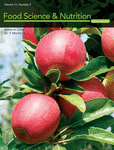
The effects of plum products consumption on lipid profile in adults: A systematic review and dose–response meta‐analysis
2024 Feb 25 Food Science & Nutrition Heydarian A, Tahvilian N, Asbaghi O, Cheshmeh S, Nadery M, Aryaeian N
Systematic Review Cholesterol LDL PlumEating plums, especially dried plums, significantly lowers LDL levels and total cholesterol levels, particularly in adults with existing health issues.
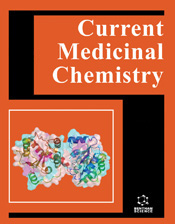
The Effects of Apple Cider Vinegar on Cardiometabolic Risk Factors: A Systematic Review and Meta-analysis of Clinical Trials
2023 Oct 11 Current Medicinal Chemistry Dadkhah Tehrani S, Keshani M, Rouhani MH, Moallem SA, Bagherniya M, Sahebkar A
Systematic Review Meta-Analysis Apple Cider Vinegar Blood Sugar Cholesterol HbA1CConsumption of apple cider vinegar significantly improves certain risk factors for cardiometabolic syndrome, notably fasting blood glucose, glycosylated hemoglobin, and total cholesterol.

The effects of pomegranate consumption on lipid profile in adults: A systematic review and meta-analysis
2023 Sep Journal of Functional Foods Bahari H, Rezaiian F, Goudarzi K, Nooshan Mirmohammadali S, Asbaghi O, sadat Hosseini kolbadi K, et al.
Systematic Review Meta-Analysis Cholesterol Triglyceride PomegranatePomegranate consumption positively affects triglycerides, low-density lipoprotein cholesterol, and high-density lipoprotein cholesterol levels.
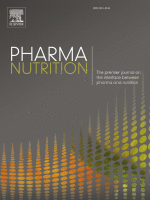
Soy protein, bioactive peptides, and isoflavones: A review of their safety and health benefits
2023 Sep PharmaNutrition Tan ST, Tan SS, Tan CX
Review Article Type 2 Diabetes Soybean Osteoporosis Isoflavone Cholesterol High Blood PressureSoy protein, bioactive peptides, and isoflavones are generally safe for consumption and may help reduce the risk of several significant health conditions.
Research insights are moderated by the Research Hub team and offer an at-a-glance overview of interesting research findings.

2024 Complementary Therapies in Medicine
Consuming jujube notably reduces waist circumference, triglycerides, and stress, while increasing high-density lipoprotein cholesterol in subjects with metabolic syndrome.
Randomised Controlled Trial Jujube Stress Triglyceride
The effects of jujube (Ziziphus jujube) on metabolic and mental health outcomes in patients with metabolic syndrome: A randomized controlled trial
Parastouei K, Nashtar SB, Al-Attar Z, Shekarchizadeh-Esfahani P, Askari G

2024 Food Science & Nutrition
Eating plums, especially dried plums, significantly lowers LDL levels and total cholesterol levels, particularly in adults with existing health issues.
Systematic Review LDL Plum
The effects of plum products consumption on lipid profile in adults: A systematic review and dose–response meta‐analysis
Heydarian A, Tahvilian N, Asbaghi O, Cheshmeh S, Nadery M, Aryaeian N

2023 Current Medicinal Chemistry
Consumption of apple cider vinegar significantly improves certain risk factors for cardiometabolic syndrome, notably fasting blood glucose, glycosylated hemoglobin, and total cholesterol.
Systematic Review Apple Cider Vinegar Blood Sugar HbA1C
The Effects of Apple Cider Vinegar on Cardiometabolic Risk Factors:
A Systematic Review and Meta-analysis of Clinical Trials
Dadkhah Tehrani S, Keshani M, Rouhani MH, Moallem SA, Bagherniya M, Sahebkar A

2023 PharmaNutrition
Soy protein, bioactive peptides, and isoflavones are generally safe for consumption and may help reduce the risk of several significant health conditions.
Review Article High Blood Pressure Isoflavone Osteoporosis Soybean Type 2 Diabetes
Soy protein, bioactive peptides, and isoflavones: A review of their safety and health benefits
Tan ST, Tan SS, Tan CX

2023 Journal of Functional Foods
Pomegranate consumption positively affects triglycerides, low-density lipoprotein cholesterol, and high-density lipoprotein cholesterol levels.
Systematic Review Pomegranate Triglyceride
The effects of pomegranate consumption on lipid profile in adults: A systematic review and meta-analysis
Bahari H, Rezaiian F, Goudarzi K, Nooshan Mirmohammadali S, Asbaghi O, sadat Hosseini kolbadi K, et al.
Review Articles
Review articles summarise and critically evaluate the current state of research on a specific topic or field by synthesising multiple primary research studies.

The effects of plum products consumption on lipid profile in adults: A systematic review and dose–response meta‐analysis
2024 Feb 25 Food Science & Nutrition Heydarian A, Tahvilian N, Asbaghi O, Cheshmeh S, Nadery M, Aryaeian N
Systematic Review Cholesterol LDL PlumEating plums, especially dried plums, significantly lowers LDL levels and total cholesterol levels, particularly in adults with existing health issues.

The Effects of Apple Cider Vinegar on Cardiometabolic Risk Factors: A Systematic Review and Meta-analysis of Clinical Trials
2023 Oct 11 Current Medicinal Chemistry Dadkhah Tehrani S, Keshani M, Rouhani MH, Moallem SA, Bagherniya M, Sahebkar A
Systematic Review Meta-Analysis Apple Cider Vinegar Blood Sugar Cholesterol HbA1CConsumption of apple cider vinegar significantly improves certain risk factors for cardiometabolic syndrome, notably fasting blood glucose, glycosylated hemoglobin, and total cholesterol.

The effects of pomegranate consumption on lipid profile in adults: A systematic review and meta-analysis
2023 Sep Journal of Functional Foods Bahari H, Rezaiian F, Goudarzi K, Nooshan Mirmohammadali S, Asbaghi O, sadat Hosseini kolbadi K, et al.
Systematic Review Meta-Analysis Cholesterol Triglyceride PomegranatePomegranate consumption positively affects triglycerides, low-density lipoprotein cholesterol, and high-density lipoprotein cholesterol levels.

Soy protein, bioactive peptides, and isoflavones: A review of their safety and health benefits
2023 Sep PharmaNutrition Tan ST, Tan SS, Tan CX
Review Article Type 2 Diabetes Soybean Osteoporosis Isoflavone Cholesterol High Blood PressureSoy protein, bioactive peptides, and isoflavones are generally safe for consumption and may help reduce the risk of several significant health conditions.
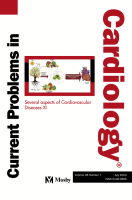
Effect of Oat (Avena sativa L.) Consumption on Lipid Profile With Focus on Triglycerides and High-density Lipoprotein Cholesterol (HDL-C): An Updated Systematic Review
2023 Jul Current Problems in Cardiology Amerizadeh A, Ghaheh HS, Vaseghi G, Farajzadegan Z, Asgary S
Systematic Review Triglyceride Cholesterol HDL-C OatsOat consumption can significantly improve lipid profiles, particularly reducing total cholesterol and LDL cholesterol, with potential positive effects on triglycerides and HDL cholesterol under certain conditions.
Clinical Trials
Clinical trials are research studies that involve people and are conducted to evaluate the safety and efficacy of new treatments or interventions, such as drugs, medical devices, or behavioural therapies.

The effects of jujube (Ziziphus jujube) on metabolic and mental health outcomes in patients with metabolic syndrome: A randomized controlled trial
2024 Jun Complementary Therapies in Medicine Parastouei K, Nashtar SB, Al-Attar Z, Shekarchizadeh-Esfahani P, Askari G
Randomised Controlled Trial Stress Triglyceride Cholesterol JujubeConsuming jujube notably reduces waist circumference, triglycerides, and stress, while increasing high-density lipoprotein cholesterol in subjects with metabolic syndrome.

Manufacture and Evaluation of Novel Chocolate for Girls' Dysmenorrhea
2023 Mar 01 Journal of Food and Dairy Sciences Shalaby, A, Moawad O, Mostafa M
Randomised Controlled Trial Ginger Chinese Cinnamon Dark Chocolate Iron Field Mint CinnamonCinnamon, ginger, and mint enhanced chocolates effectively reduce menstrual pain and improve blood iron levels without increasing body weight or negatively affecting cholesterol.
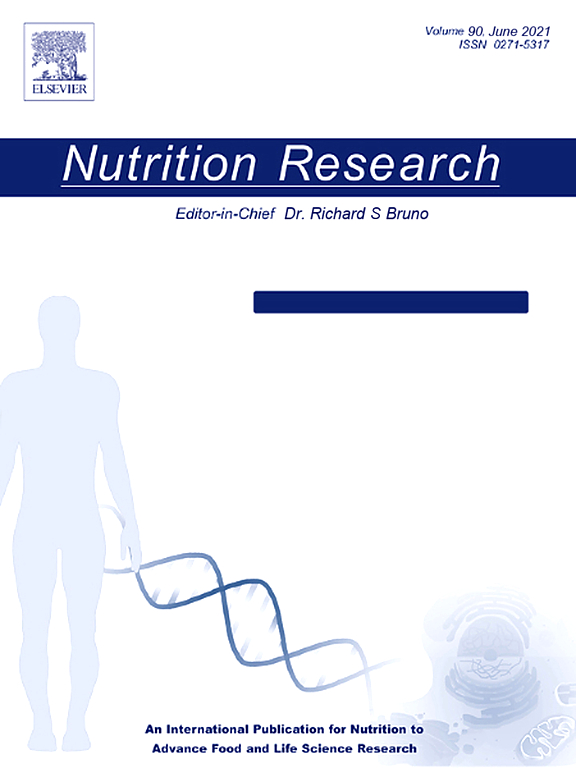
Pecan-enriched diet improves cholesterol profiles and enhances postprandial microvascular reactivity in older adults
2023 Mar Nutrition Research Cogan B, Pearson RC, Paton CM, Jenkins NT, Cooper JA
Daily consumption of 68 g of pecans for 4 weeks resulted in greater reductions in fasting total cholesterol, low-density lipoprotein (LDL) cholesterol, non-high-density lipoprotein cholesterol, LDL particle number, and LDL medium compared to a nut-free diet. Postprandial triglyceride levels were suppressed with pecan consumption, and improvements in microvascular reactivity were observed. Fasting macro- and microvascular function remained unaffected. The findings suggest that pecan consumption may contribute to improved vascular health and reduced cardiovascular risk in older adults.
Clinical Study Randomised Controlled Trial Cholesterol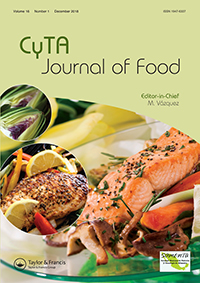
Effect of avocado honey on anthropometric and biochemical parameters in healthy subjects: a pilot randomised controlled trial
2022 Jun 16 CyTA - Journal of Food Hernández Salazar M, Flores A, Ramírez E, Llaca Díaz J, Rodríguez B, Castro H
Randomised Controlled Trial AvocadoAvocado honey, rich in bioactive compounds, can serve as a natural sweetener without negatively impacting anthropometric and biochemical parameters.

Effects of Blueberry Consumption on Cardiovascular Health in Healthy Adults: A Cross-Over Randomised Controlled Trial
2022 Jun 21 Nutrients Wang Y, Gallegos JL, Haskell-Ramsay C, Lodge JK
Randomised Controlled Trial BlueberryBoth whole blueberries and freeze-dried blueberry powder significantly enhanced plasma nitrite levels, a marker of cardiovascular health, but did not significantly affect other cardiovascular risk factors.
Study Protocols
Published study protocols are detailed plans that outline the objectives, methodology, statistical analyses, and organisation of a research study that have been made publicly available for others to review and use as a reference.
Presentation Slides

Randomised Controlled Trial
Consuming jujube notably reduces waist circumference, triglycerides, and stress, while increasing high-density lipoprotein cholesterol in subjects with metabolic syndrome.
Parastouei K, Nashtar SB, Al-Attar Z, Shekarchizadeh-Esfahani P, Askari G

Systematic Review
Eating plums, especially dried plums, significantly lowers LDL levels and total cholesterol levels, particularly in adults with existing health issues.
Heydarian A, Tahvilian N, Asbaghi O, Cheshmeh S, Nadery M, Aryaeian N

Systematic Review
Consumption of apple cider vinegar significantly improves certain risk factors for cardiometabolic syndrome, notably fasting blood glucose, glycosylated hemoglobin, and total cholesterol.
Dadkhah Tehrani S, Keshani M, Rouhani MH, Moallem SA, Bagherniya M, Sahebkar A

Review Article
Soy protein, bioactive peptides, and isoflavones are generally safe for consumption and may help reduce the risk of several significant health conditions.
Tan ST, Tan SS, Tan CX

Systematic Review
Pomegranate consumption positively affects triglycerides, low-density lipoprotein cholesterol, and high-density lipoprotein cholesterol levels.
Bahari H, Rezaiian F, Goudarzi K, Nooshan Mirmohammadali S, Asbaghi O, sadat Hosseini kolbadi K, Naderian M, Hosseini A
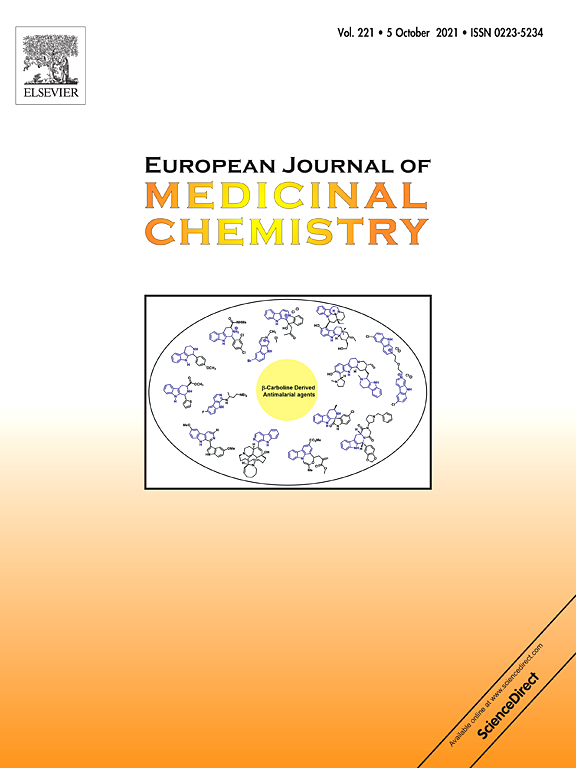
Animal Study
Jin Si Huang Ju tea, a traditional Chinese beverage, contains compounds that potentially reduce lipids, mitigate insulin resistance and reduce liver inflammation in vitro.
Li X, Li R, Wang X, Zhang X, Xiao Z, Wang H, Sun W, Yang H, Yu P, Hu Q, Guo Q, Sun H

Systematic Review
Oat consumption can significantly improve lipid profiles, particularly reducing total cholesterol and LDL cholesterol, with potential positive effects on triglycerides and HDL cholesterol under certain conditions.
Amerizadeh A, Ghaheh HS, Vaseghi G, Farajzadegan Z, Asgary S

Review Article
Sardines, being an affordable source of Omega-3 and other cardioprotective nutrients, can potentially reduce the need for Omega-3 supplementation and manage cardiometabolic diseases.
Santos HO, May TL, Bueno AA

Randomised Controlled Trial
Cinnamon, ginger, and mint enhanced chocolates effectively reduce menstrual pain and improve blood iron levels without increasing body weight or negatively affecting cholesterol.
Shalaby, A, Moawad O, Mostafa M

Clinical Study
Chrysanthemum extract can be utilised as a natural ingredient to lessen post-meal cholesterol levels and enhance antioxidant status, after eating a high-fat meal.
Chen L, Sun J, Pan Z, Lu Y, Wang Z, Yang L, Sun G
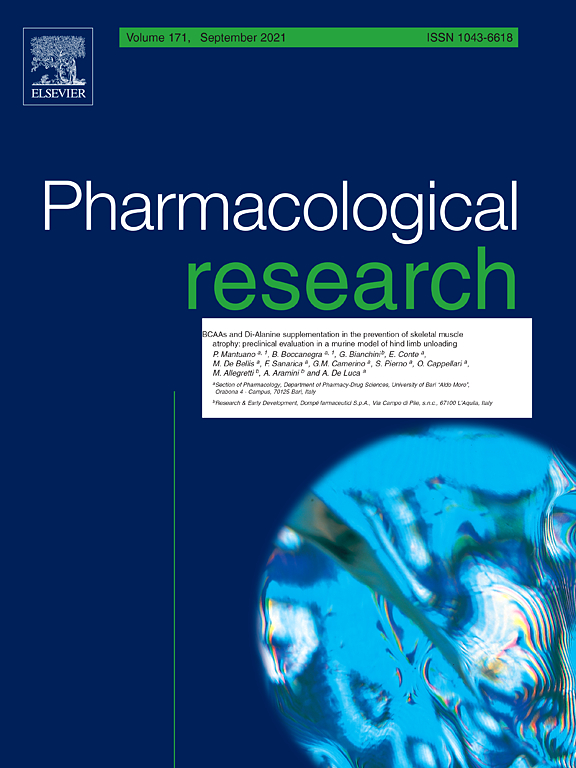
Review Article
Consumption of tea and coffee may possibly provide anti-inflammatory effects, contributing to reduced cardiovascular risk and mortality.
Surma S, Sahebkar A, Banach M
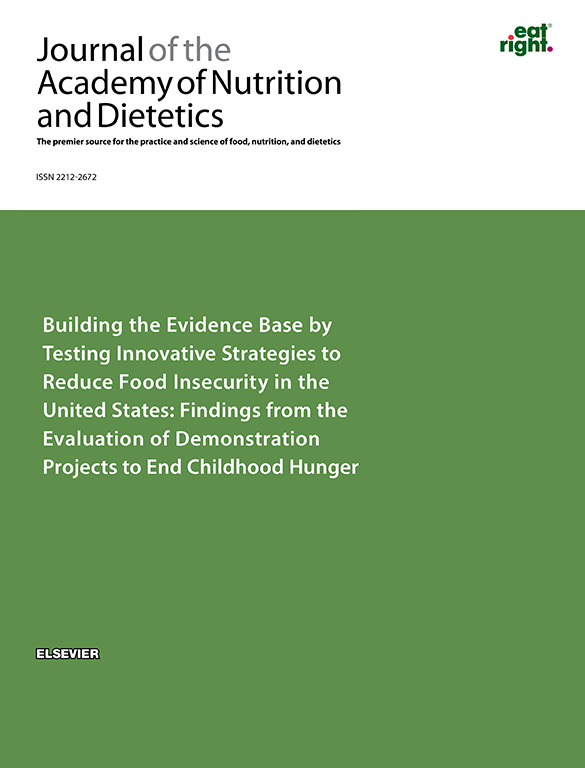
Systematic Review
Avocado consumption may lead to a reduction in total cholesterol and low-density lipoprotein cholesterol levels in people with high cholesterol without impacting body weight.
James-Martin G, Brooker PG, Hendrie GA, Stonehouse W
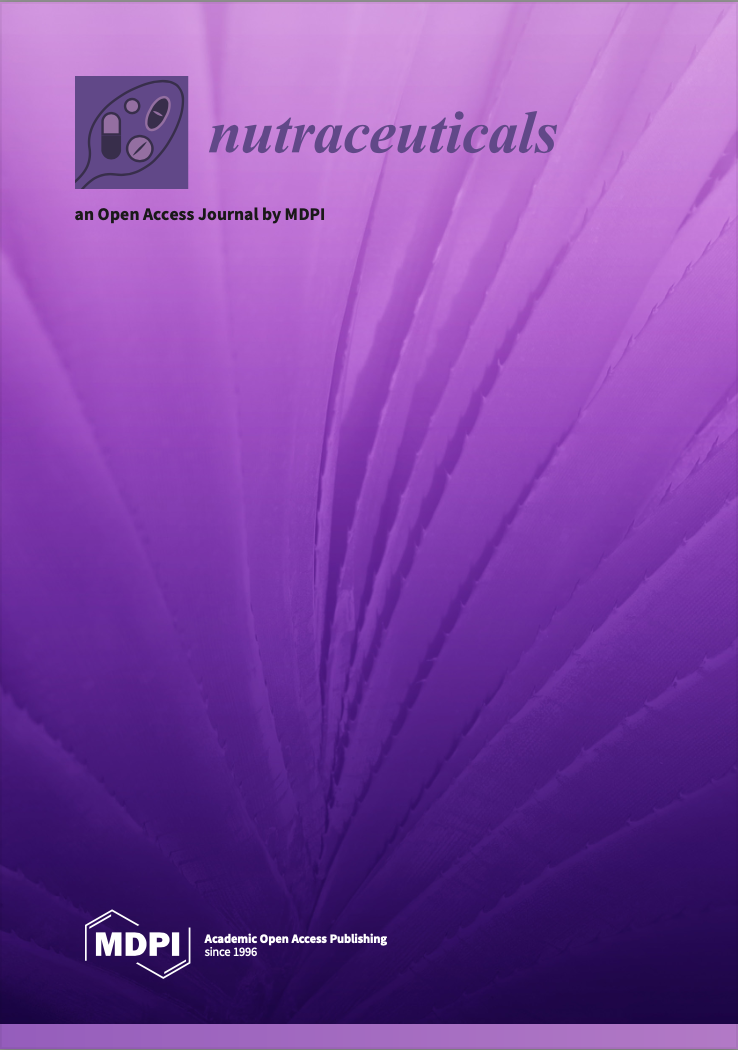
Animal Study
A. lappa (burdock root) benefits diabetic rodents by reducing blood glucose and improving lipids, but human effects are uncertain
Watanabe S, Yamabe S, Shimada M

Randomised Controlled Trial
Both whole blueberries and freeze-dried blueberry powder significantly enhanced plasma nitrite levels, a marker of cardiovascular health, but did not significantly affect other cardiovascular risk factors.
Wang Y, Gallegos JL, Haskell-Ramsay C, Lodge JK

Randomised Controlled Trial
Avocado honey, rich in bioactive compounds, can serve as a natural sweetener without negatively impacting anthropometric and biochemical parameters.
Hernández Salazar M, Flores A, Ramírez E, Llaca Díaz J, Rodríguez B, Castro H

Animal Study
Certain natural mineral waters, when combined with a low-calorie diet, effectively reduce cholesterol and glucose levels in mice with metabolic syndrome.
Narciso L, Martinelli A, Torriani F, Frassanito P, Bernardini R, Chiarotti F, Marianelli C
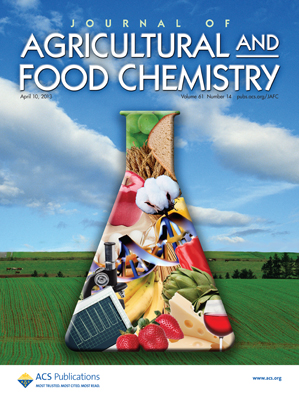
Experimental Study
Pu-erh tea may prevent circadian rhythm disorders by promoting tryptophan metabolism and signaling interactions in the gut-liver-brain axis.
Hu S, Luo L, Bian X, Liu RH, Zhao S, Chen Y, Sun K, Jiang J, Liu Z, Zeng L

Meta-Analysis
Regular peanut consumption appears to positively influence lipid metabolism, reducing levels of triglycerides in the blood.
Parilli-Moser I, Hurtado-Barroso S, Guasch-Ferré M, Lamuela-Raventós RM

Meta-Analysis
Certain species of citrus extracts effectively control dyslipidemia, reducing total cholesterol, LDL, and triglycerides while increasing HDL, primarily due to their rich antioxidant composition.
Carvalho BMR, Nascimento LC, Nascimento JC, Gonçalves VSS, Ziegelmann PK, Tavares DS, Guimarães AG
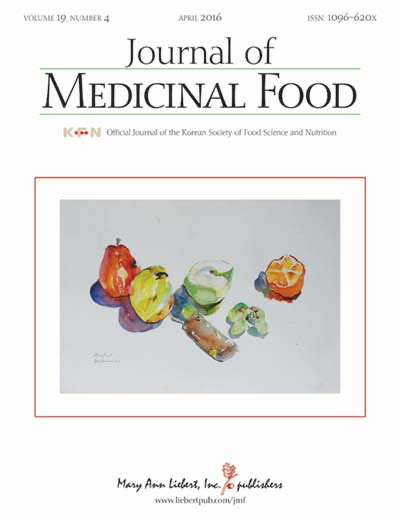
Systematic Review
Raspberry consumption can help to reduce blood glucose levels and stabilize the blood lipid profile due to its bioactive compounds.
Piña-Contreras N, Martínez-Moreno AG, Ramírez-Anaya JDP, Espinoza-Gallardo AC, Valdés EHM
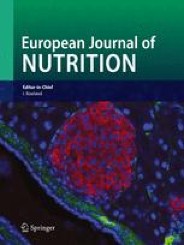
Meta-Analysis
Oat supplementation interventions can improve cardiovascular health markers among adults, regardless of their diet or metabolic conditions.
Llanaj E, Dejanovic GM, Valido E, Bano A, Gamba M, Kastrati L, Minder B, Stojic S, Voortman T, Marques-Vidal P, Stoyanov J, Metzger B, Glisic M, Kern H, Muka T

Review Article
Coconut water possesses unique compound profiles that imbue it with a broad spectrum of medical properties, incorporating aspects of nutrition, pharmacology, and disease prevention.
Rethinam P, Krishnakumar V
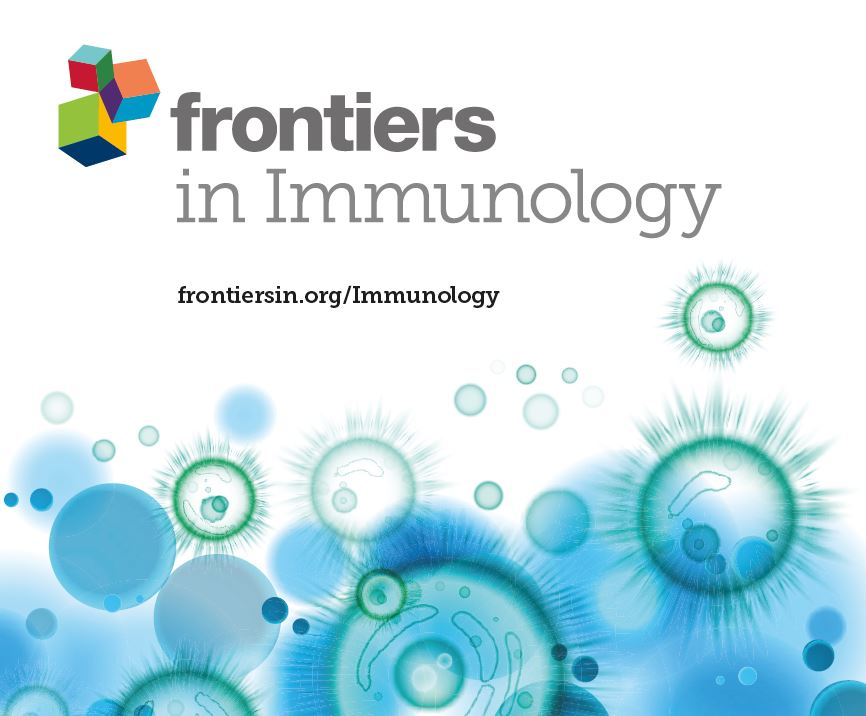
Experimental Study
Consuming oats significantly lessens total and LDL cholesterol levels and mediates a prebiotic effect on the gut microbiome, contributing to its cholesterol-lowering ability.
Xu D, Feng M, Chu YF, Wang S, Shete V, Tuohy KM, Liu F, Zhou X, Kamil A, Pan D, Liu H, Yang X, Yang C, Zhu B, Lv N, Xiong Q, Wang X, Sun J, Sun G, Yang Y

Systematic Review
Cinnamon supplementation may significantly enhance metabolic status in women with polycicstic ovary syndrome, notably improving high-density lipoprotein and insulin sensitivity, and decreasing low-density lipoprotein, triglyceride, and blood glucose levels.
Maleki V, Faghfouri AH, Tabrizi FPF, Moludi J, Saleh-Ghadimi S, Jafari-Vayghan H, Qaisar SA
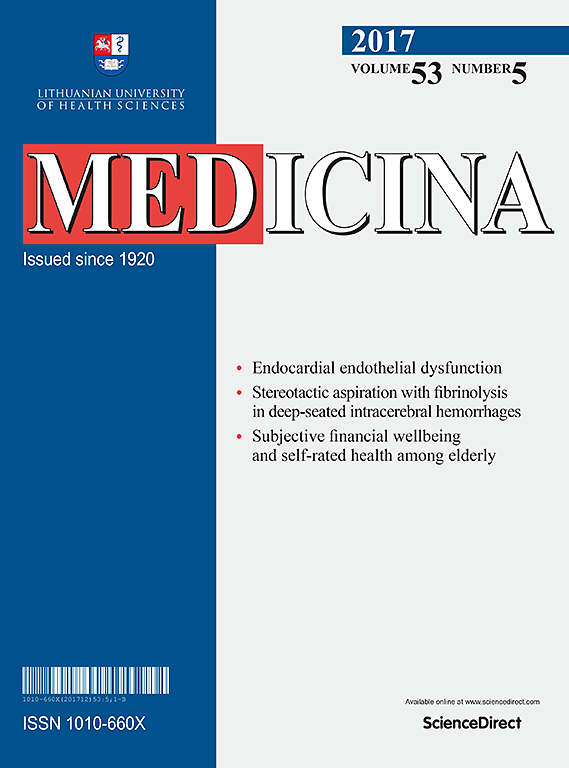
Systematic Review
Coffee extract supplementation significantly improves parameters of metabolic syndrome, with the effects varying according to the types and doses of coffee administered.
Ramli NNS, Alkhaldy AA, Mhd Jalil AM

Randomised Controlled Trial
Pomegranate extract supplement shows potential in improving glycemic indicators, serum lipids, anthropometrics, and blood pressure in patients with nonalcoholic fatty liver disease.
Goodarzi R, Jafarirad S, Mohammadtaghvaei N, Dastoorpoor M, Alavinejad P

Systematic Review
Chocolate and cocoa product consumption significantly improved lipid profiles, but had no significant effect on other heath aspects such as cognitive function and blood pressure.
Tan TYC, Lim XY, Yeo JHH, Lee SWH, Lai NM

Animal Study
Omega-3 fatty acids found in selected fish oils, particularly smoked eel, effectively managed dyslipidemia and reduced cardiovascular disease risk factors.
Kontostathi M, Isou S, Mostratos D, Vasdekis V, Demertzis N, Kourounakis A, Vitsos A, Kyriazi M, Melissos D, Tsitouris C, Karalis E, Klamarias L, Dania F, Papaioannou GT, Roussis V, Polychronopoulos E, Anastassopoulou J, Theophanides T, Rallis MC, Black H

Systematic Review
Apple cider vinegar intake can significantly decrease total cholesterol and fasting plasma glucose levels contributing to better cardiovascular health among adults.
Hadi A, Pourmasoumi M, Najafgholizadeh A, Clark CCT, Esmaillzadeh A

Systematic Review
The consumption of cocoa or dark chocolate can reduce low-density lipoprotein cholesterol and fasting blood sugar levels in diabetic patients.
Darand M, Hajizadeh Oghaz M, Hadi A, Atefi M, Amani R
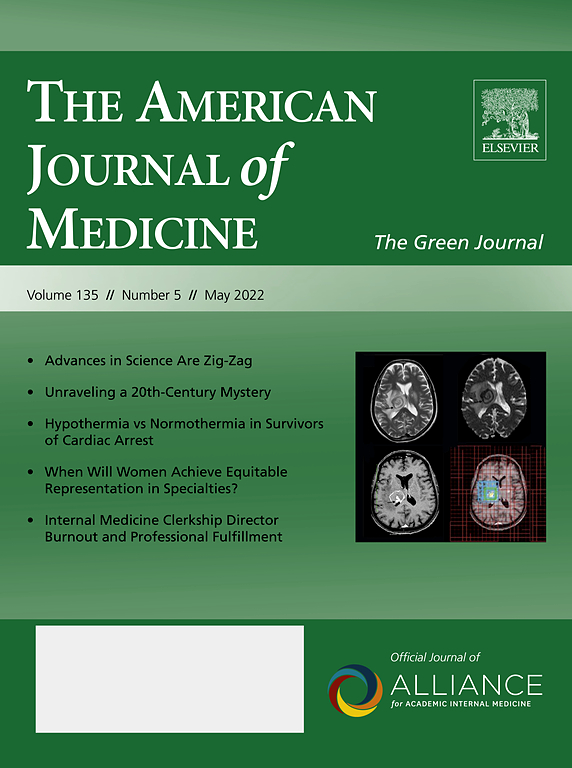
Systematic Review
Coffee consumption, particularly boiled coffee, may increase levels of certain cardiovascular risk markers, but no strong link was found to anti-inflammatory effects.
Daneschvar HL, Smetana GW, Brindamour L, Bain PA, Mukamal KJ
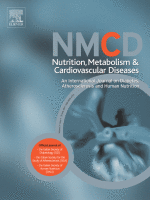
Systematic Review
Consumption of certain foods like rapeseed/canola oil, avocados, and turmeric can lead to moderate to large reductions in LDL cholesterol levels.
Schoeneck M, Iggman D
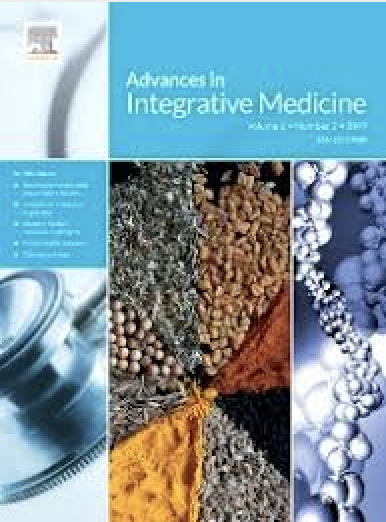
Randomised Controlled Trial
Pomegranate peel extract supplementation can decrease total cholesterol and triglyceride levels while boosting antioxidant status in obese women with knee osteoarthritis.
Haghighian MK, Rafraf M, Hemmati S, Haghravan S, Asghari-Jafarabadi M

Cohort Study
Moderate coffee consumption may potentially reduce the risk of low HDL-C and high fasting blood glucose amongst Korean male adults.
Tan LJ, Jeon HJ, Park SH, Kim SA, Lim K, Chung S, Chang PS, Lee J, Kang D, Shin S
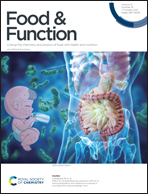
Systematic Review
Almond intake significantly changed the concentrations of triglycerides, total cholesterol and low-density lipoproteins
Asbaghi O, Moodi V, Hadi A, Eslampour E, Shirinbakhshmasoleh M, Ghaedi E, Miraghajani M

Experimental Study
Pomegranate seed oil, rich in conjugated linolenic acid, potentially acts as a cytotoxic agent on tissue tumor cells, reducing polycystic ovary syndrome manifestations.
Bahmani M, Shokri S, Akhtar ZN, Abbaszadeh S, Manouchehri A
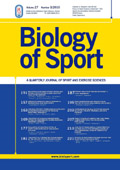
Randomised Controlled Trial
Walnut consumption coupled with concurrent training improves lipid profile, steroid hormone levels, and systematic inflammation in elderly men.
Kamoun A, Hammouda O, Turki M, Maaloul R, Chtourou M, Bouaziz M, Driss T, Souissi N, Chamari K, Ayadi F
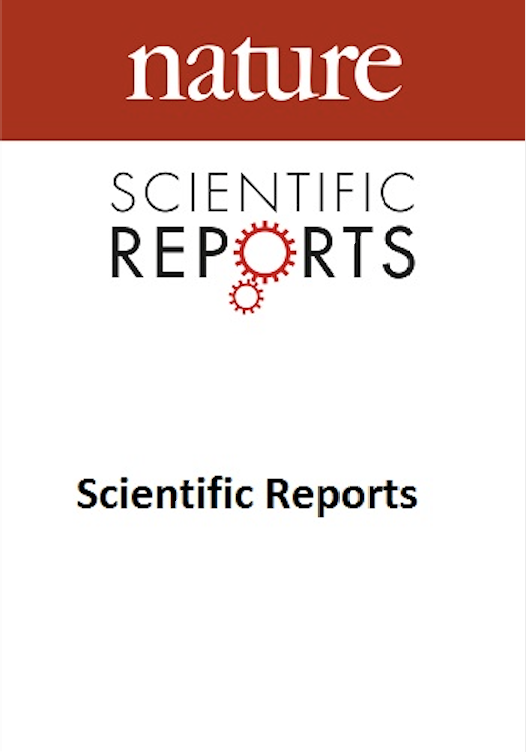
Systematic Review
Chilli pepper supplementation had significant effect on low density lipoprotein-cholesterol and marginally significant effect on body weight.
Jang, HH., Lee, J., Lee, SH. et al.

Randomised Controlled Trial
Daily consumption of tart cherry juice may reduce processes involved in accelerated atherogenesis, potentially decreasing the risk of cardiovascular diseases.
Johnson SA, Navaei N, Pourafshar S, Jaime SJ, Akhavan NS, Alvarez-Alvarado S, Proaño GV, Litwin NS, Clark EA, Foley EM, George KS, Elam ML, Payton ME, Arjmandi BH, Figueroa A
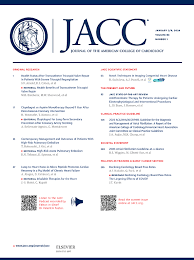
Randomised Controlled Trial
Incorporating daily doses of walnuts into the diet of elderly individuals significantly reduces the concentrations of several inflammatory biomarkers.
Cofán M, Rajaram S, Sala-Vila A, Valls-Pedret C, Serra-Mir M, Roth I, Freitas-Simoes TM, Bitok E, Sabaté J, Ros E

Systematic Review
The consumption of green tea significantly lowers low-density lipoprotein cholesterol and total cholesterol, but it does not affect high-density lipoprotein cholesterol or triglycerides.
Xu R, Yang K, Li S, Dai M, Chen G

Clinical Study
Montmorency tart cherry juice can significantly improve blood pressure, fasting glucose, cholesterol rates and respiratory exchange ratio in those with metabolic syndrome.
Desai T, Roberts M, Bottoms L
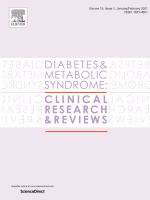
Systematic Review
Green tea extract supplement intake reduces serum triglyceride and total cholesterol in patients with type 2 diabetes mellitus, especially when used long term.
Asbaghi O, Fouladvand F, Moradi S, Ashtary-Larky D, Choghakhori R, Abbasnezhad A

Experimental Study
Honey contains 20(S)-Hydroxyvitamin D3 (20(OH)D3) and its derivatives, including 20(OH)-7DHC, 25(OH)D3, and 1,25(OH)2D3, indicating their production in bees and suggesting potential health implications.
Kim TK, Atigadda V, Brzeminski P, Fabisiak A, Tang EKY, Tuckey RC, Slominski AT

Experimental Study
We determined the concentration of 20(OH)D3 in honey to be 0.26 µg/g, corresponding to approximately 10 IU/g.
Kim TK, Atigadda V, Brzeminski P, Fabisiak A, Tang EKY, Tuckey RC, Slominski AT
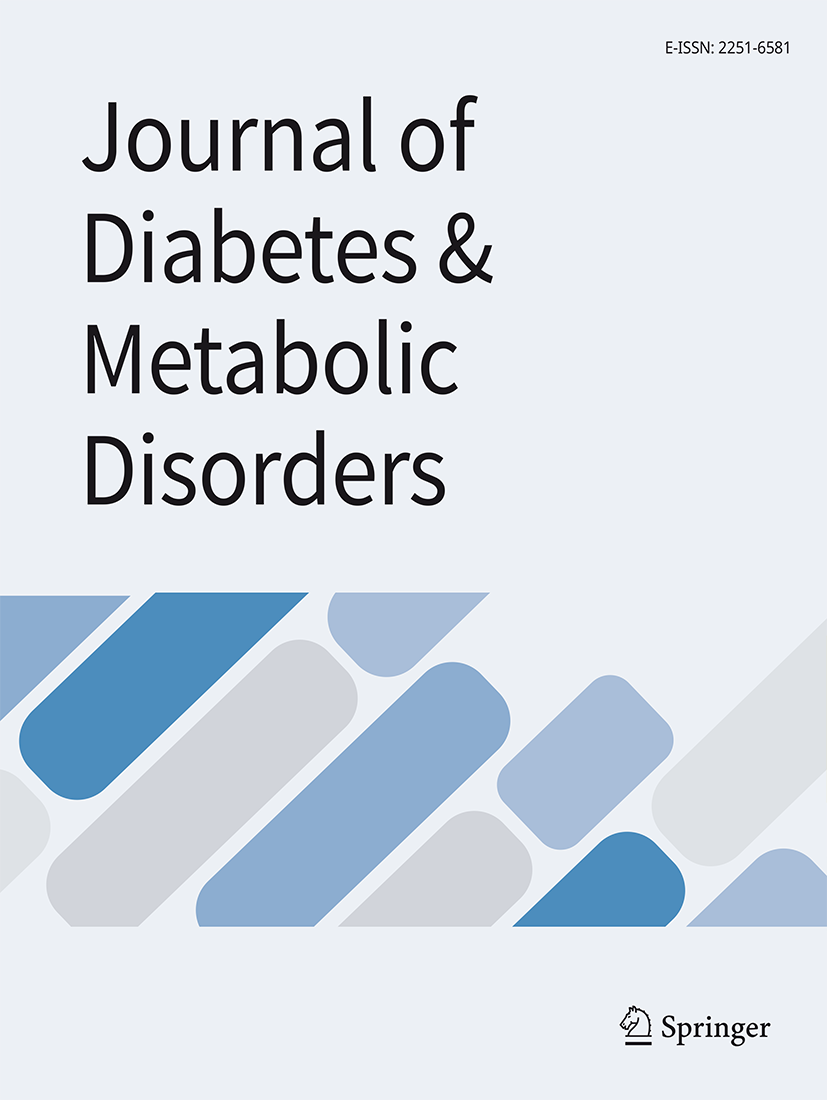
Systematic Review
Green coffee supplementation significantly decreases fasting blood sugar, insulin, and triglycerides while boosting high-density lipoprotein levels.
Morvaridi M, Rayyani E, Jaafari M, Khiabani A, Rahimlou M
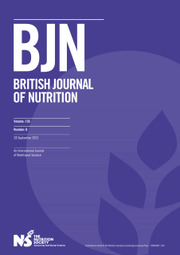
Meta-Analysis
Strawberry interventions significantly reduced CRP levels and may improve total cholesterol and LDL-cholesterol in individuals with high baseline levels.
Gao Q, Qin LQ, Arafa A, Eshak ES, Dong JY
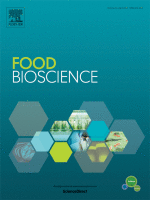
Review Article
Different varieties of dates pose impressive nutritional profiles and exhibit multiple health benefits, including anti-cancer, anti-inflammatory, and cholesterol lowering potential.
Hussain MI, Farooq M, Syed QA

Randomised Controlled Trial
Daily intake of 3 grams of oat beta-glucans significantly reduces LDL-Cholesterol, Total Cholesterol, and non-HDL-Cholesterol levels without impacting intestinal well-being or glucose levels.
Cicero AFG, Fogacci F, Veronesi M, Strocchi E, Grandi E, Rizzoli E, Poli A, Marangoni F, Borghi C

Theoretical Article
Consumption of oat β-glucan may lower cholesterol and risk of cardiovascular disease by altering gut bacteria and their effects on bile acid and cholesterol metabolism.
Joyce SA, Kamil A, Fleige L, Gahan CGM

Experimental Study
Pu-erh tea was found to lower triglyceride and total cholesterol levels more significantly than green, oolong, or black teas.
Huang, F., Zheng, X., Ma, X. et al.

Systematic Review
Drinking certain types of mineral water can positively influence metabolic syndrome factors like blood pressure, cholesterol, and blood sugar levels.
Costa-Vieira D, Monteiro R, Martins MJ
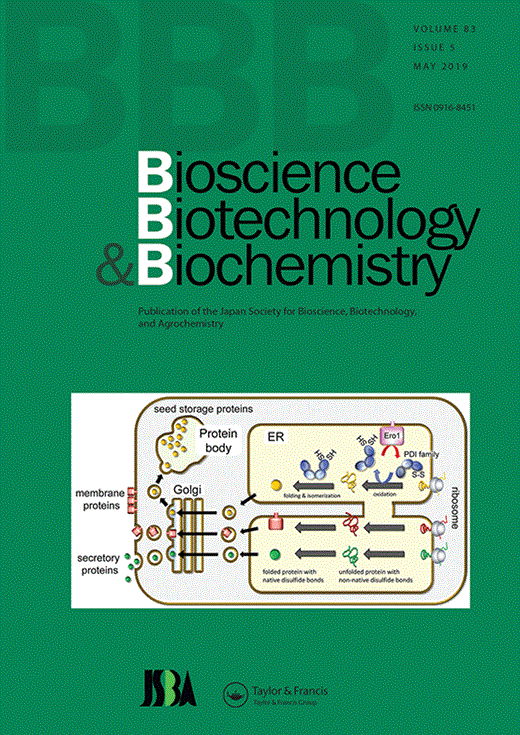
Randomised Controlled Trial
Adzuki bean extract administered once a day can result in increased HDL-C concentration.
Kitano-Okada T, Nagata R, Han KH, Mikami N, Satoh K, Nishihira J, Sasaki K, Ohba K, Fukusima M

Systematic Review
Consumption of virgin avocado oil, rich in monounsaturated fatty acids and bioactive components, may help manage chronic diseases like hypertension, diabetes, and lower cardiometabolic risk.
Tan CX

Randomised Controlled Trial
Daily consumption of tart cherry juice for 12 weeks showed anti-oxidative and anti-inflammatory properties which may reduce blood pressure and lower LDL cholesterol in older adults.
Chai S, Davis K, Zhang Z, Zha L, Kirschner K

Experimental Study
Extract of pumpkin seeds displays estrogenic properties, potentially offering a solution to alleviate symptoms of menopausal syndromes resulting from estrogen deficiency.
Lestari B, Walidah Z, Utomo RY, Murwanti R, Meiyanto E
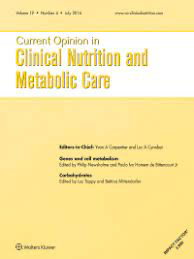
Systematic Review
Most bioactive walnut micronutrients synergize to affect multiple metabolic pathways leading to protection from chronic noncommunicable diseases.
Ros, Emilioa,b; Izquierdo-Pulido, Maríab,c; Sala-Vila, Aleix
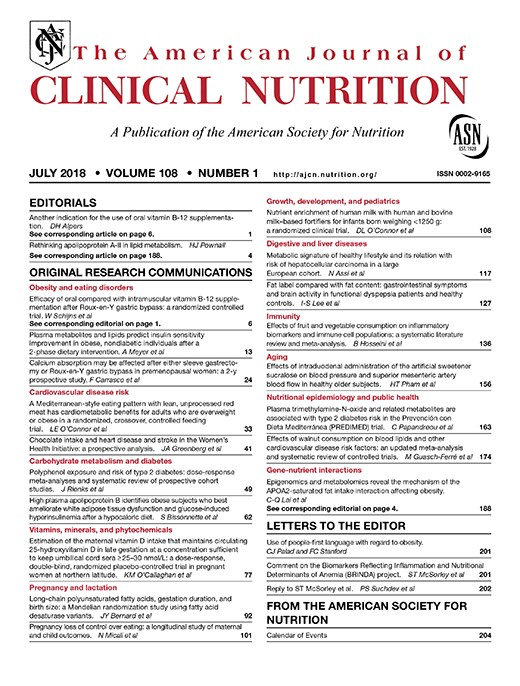
Systematic Review
Incorporating walnuts into the diet improved blood lipid profile without adversely affecting body weight or blood pressure.
Marta Guasch-Ferré, Jun Li, Frank B Hu, Jordi Salas-Salvadó, Deirdre K Tobias

Systematic Review
Ginger supplementation has a favorable effect on levels of triacylglycerol and low-density lipoprotein cholesterol, especially in doses of 2 grams or less per day.
Pourmasoumi M, Hadi A, Rafie N, Najafgholizadeh A, Mohammadi H, Rouhani MH
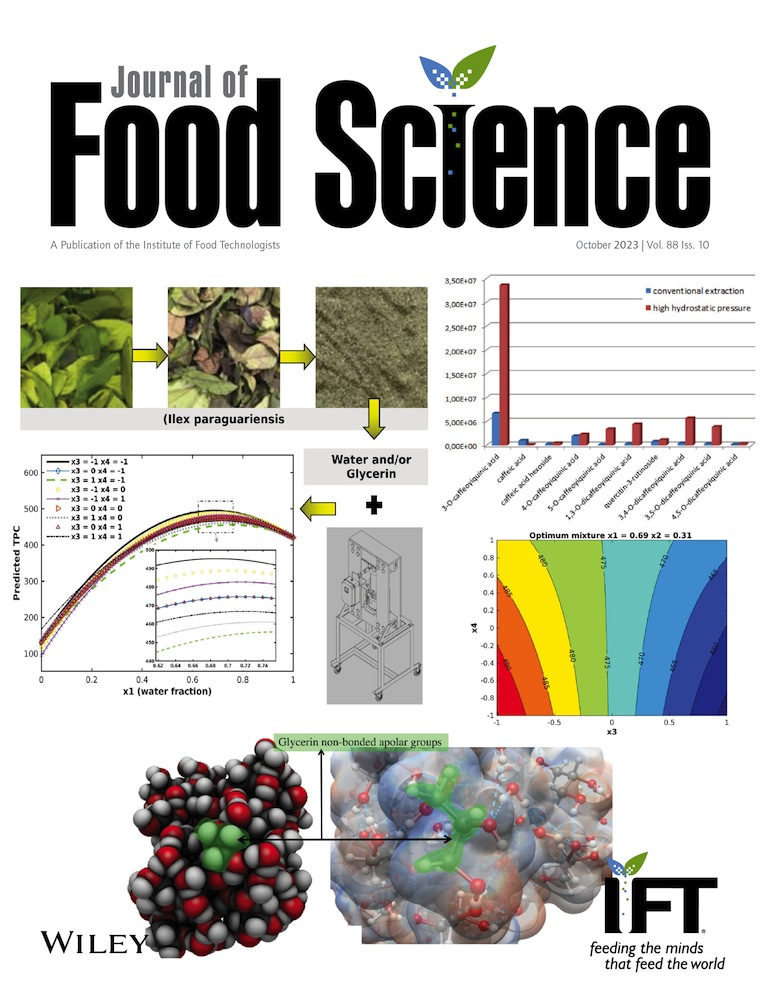
Clinical Study
Adding fresh herbs like parsley and chives to air-fried sardines reduces the levels of harmful cholesterol oxidation products formed during cooking.
Ferreira FS, Sampaio GR, Keller LM, Sawaya ACHF, Chávez DWH, Torres EAFS, Saldanha T
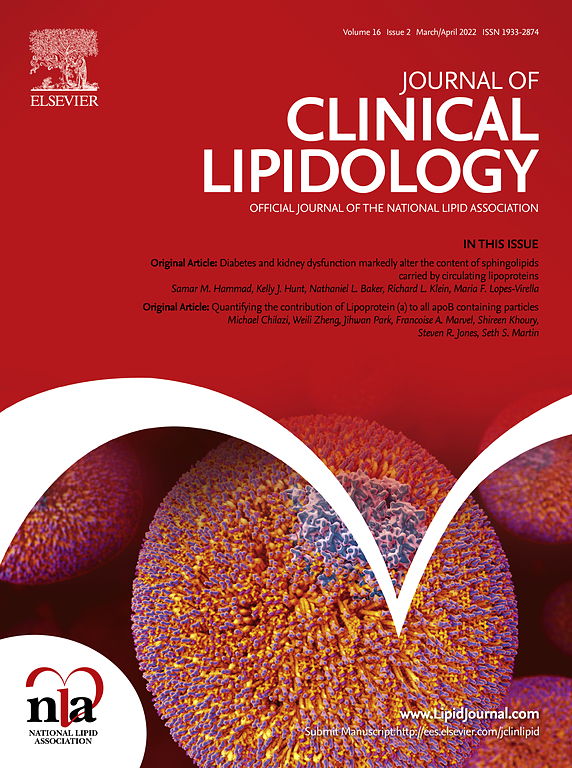
Systematic Review
Cinnamon supplementation significantly reduces blood triglycerides and total cholesterol levels without affecting low-density and high-density lipoprotein cholesterol.
Maierean SM, Serban MC, Sahebkar A, Ursoniu S, Serban A, Penson P, Banach M

Systematic Review
Of the 7 clinical trials included, five evaluating individuals with hypertension observed a significant reduction in systolic and/or diastolic blood pressure. The two articles that evaluated individuals with dyslipidemia showed improvement in lipid profile.
Carolina Alves Cardoso, Gláucia Maria Moraes de Oliveira, Luciana de Almeida Vittori Gouveia, Annie Seixas Bello Moreira & Glorimar Rosa
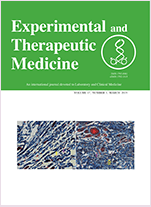
Randomised Controlled Trial
Pomegranate juice consumption over a short period promotes red blood cell production without significantly changing metabolic health and inflammation markers in healthy individuals.
Manthou E, Georgakouli K, Deli CK, Sotiropoulos A, Fatouros IG, Kouretas D, Haroutounian S, Matthaiou C, Koutedakis Y, Jamurtas AZ
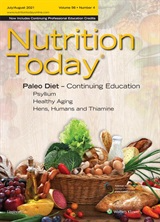
Review Article
Fenugreek can be beneficial as an adjunct in controlling high blood glucose and lipid levels in people with diabetes.
Singletary, Keith W.
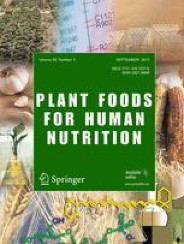
Randomised Controlled Trial
Pomegranate juice intake can reduce systolic and diastolic blood pressure and inflammation markers, but may increase triglyceride and very low-density lipoprotein cholesterol levels.
Moazzen H, Alizadeh M

Clinical Study
Drinking 1litre of mineral water daily with meals can reduce risk factors for heart and metabolic diseases, particularly when replacing sugary drinks.
Toxqui L, Vaquero M
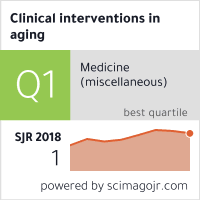
Randomised Controlled Trial
Daily consumption of Puer tea extract results in significant weight loss, reduced body fat, and improved lipid profile in a non-Asian overweight population.
Jensen GS, Beaman JL, He Y, Guo Z, Sun H.

Experimental Study
Adzuki beans present anti-atherogenic, anti-thrombogenic and hypocholesterolemic effects, and the ratios PUFA: SFA and n-6:n-3 were considered appropriate for biological system maintenance of a healthy organism.
Hou D, Yousaf L, Xue Y, et al.
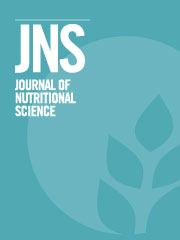
Systematic Review
Almond consumption effectively reduces blood lipid levels, thus reducing risk of heart disease.
Musa-Veloso K, Paulionis L, Poon T, Lee HY
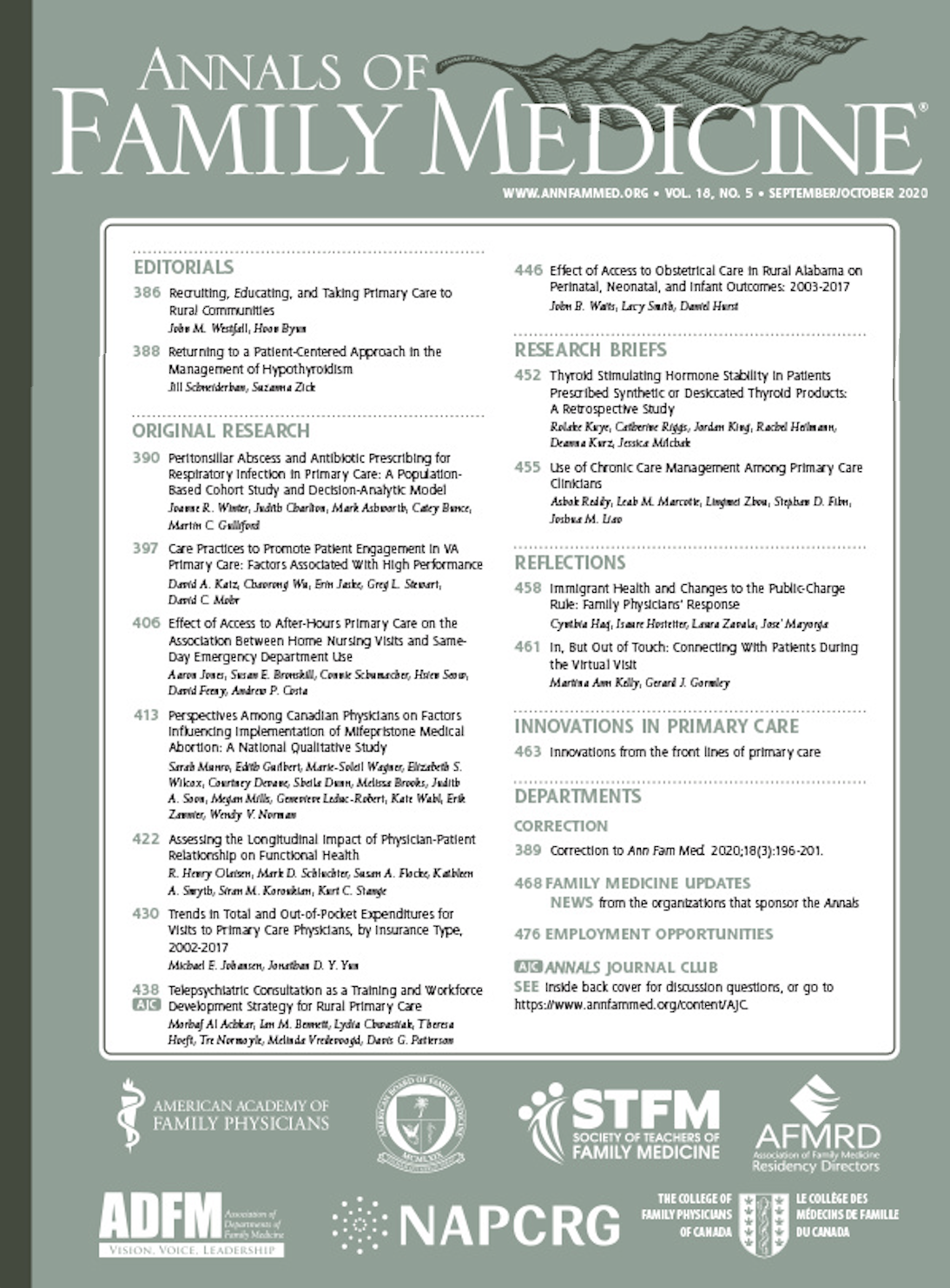
Systematic Review
The consumption of cinnamon is associated with a statistically significant decrease in levels of fasting plasma glucose, total cholesterol, LDL-C, and triglyceride levels, and an increase in HDL-C levels.
Robert W. Allen, Emmanuelle Schwartzman, William L. Baker, Craig I. Coleman and Olivia J. Phung

Experimental Study
Pomegranate polyphenols have notable antioxidant and antiatherogenic effects that lessen cholesterol, oxidized lipids accumulation, and atherosclerosis development in arterial macrophages.
Aviram M, Rosenblat M

Systematic Review
The consumption of green tea catechins is associated with a statistically significant reduction in total and LDL cholesterol levels.
Kim A, Chiu A, Barone MK, Avino D, Wang F, Coleman CI, Phung OJ
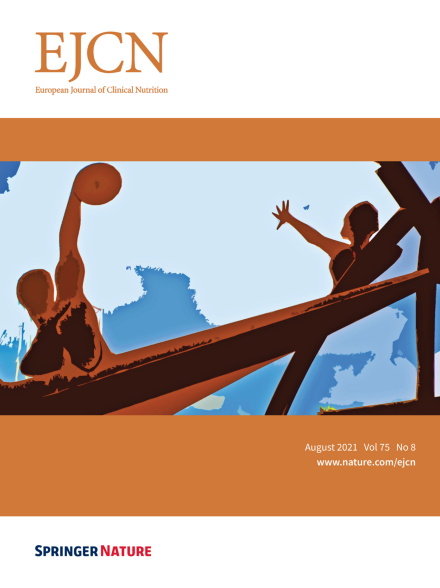
Meta-Analysis
Consumption of dark chocolate and cocoa products has been shown to significantly reduce serum levels of low-density lipoprotein (LDL) and total cholesterol (TC), indicating potential cardiovascular benefits.
Tokede OA, Gaziano JM, Djoussé L
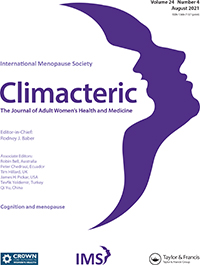
Randomised Controlled Trial
Pumpkin seed oil supplementation may increase good cholesterol levels, lower diastolic blood pressure, and alleviate menopausal symptoms in postmenopausal women.
Gossell-Williams M, Hyde C, Hunter T, Simms-Stewart D, Fletcher H, McGrowder D, Walters CA
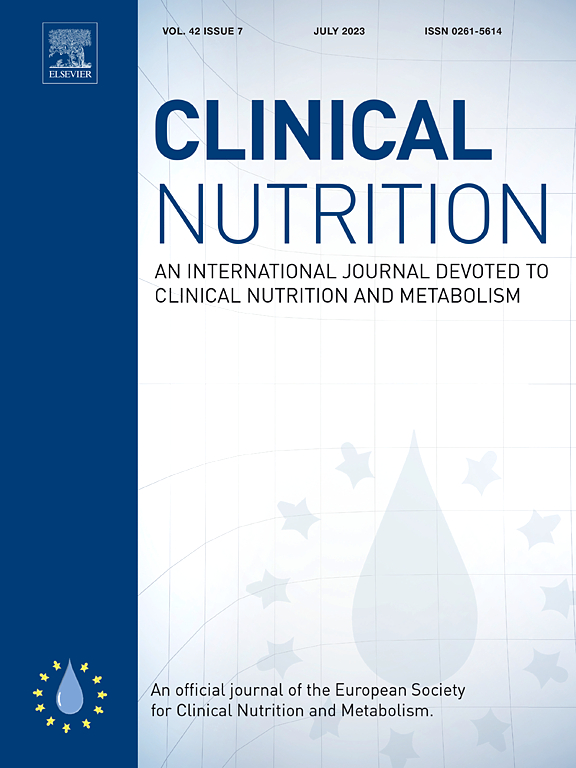
Clinical Study
Consumption of pomegranate juice by patients with carotid artery stenosis decreases carotid intima-media thickness and systolic blood pressure, potentially due to its strong antioxidant properties.
Aviram M, Rosenblat M, Gaitini D, Nitecki S, Hoffman A, Dornfeld L, Volkova N, Presser D, Attias J, Liker H, Hayek T
Executive Summary
Write an executive summary in the form of a blog article on the topic of "Research into Chinese medicine treatment for Cholesterol" summarising the research below and using language that can be easily understood by patients and avoiding medical jargon using a professional and caring tone of voice.
Write an executive summary in the form of a blog article on the topic of "Researched Chinese medicine treatments for Cholesterol" summarising the research below in an objective and easy to understand way, and using language that can be easily understood by patients. Group the article into Chinese medicine treatments first, followed by nutrition and other treatments. Avoid using medical jargon and use a professional and caring tone of voice.
Write me a concise but easy to understand executive summary on the topic of "Chinese medicine treatments for Cholesterol" based on the following research that I will give you. Your summary should be 2 paragraphs long in Australian English spelling and include references to the studies.
A Randomised Controlled Trial published in 2024 in the journal Complementary Therapies in Medicine found that Consuming jujube notably reduces waist circumference, triglycerides, and stress, while increasing high-density lipoprotein cholesterol in subjects with metabolic syndrome. In this parallel-group, randomized controlled trial, sixty participants diagnosed with metabolic syndrome were randomly assigned to either receive 30g of dried jujube powder or a placebo for an eight-week period. They were instructed to consume half of their given powder at two different points in the day. Four measurements were taken as primary outcomes: lipid profile, fasting blood glucose, waist circumference, and blood pressure. Additionally, mental health measures, such as depression, anxiety, and stress, were evaluated as secondary outcomes. The data analysis showed that consuming jujube didn't lead to significant reductions in fasting blood glucose, total cholesterol, low-density lipoprotein cholesterol, blood pressure, or depression and anxiety scores. However, compared to the placebo group, the group consuming jujube showed a key reduction in waist circumference and triglycerides, and an increase in high-density lipoprotein cholesterol. Moreover, an improvement in stress scores was observed in the jujube group. The study, however, had methodological shortcomings regarding effective blinding and testing for herb purity and potency.
A Systematic Review published in 2024 in the journal Food Science & Nutrition found that Eating plums, especially dried plums, significantly lowers LDL levels and total cholesterol levels, particularly in adults with existing health issues. The researchers conducted a systematic review and meta-analysis using keyword searches on databases such as PubMed, Scopus, and ISI Web of Science up to a specified date. They were on a mission to find eligible trials that would help ascertain the benefits of plum consumption on adult lipid profiles. In their observation of the collected data, they concluded that plum, specifically dried plum consumption, had a noteworthy impact on LDL levels, mainly when the subjects were in an unhealthy state. This consumption led to a significant decrease in total cholesterol levels in the unhealthy subjects. Nevertheless, the study couldn't establish major changes in triglycerides and HDL concentrations as a result of the plum consumption.
A Systematic Review published in 2023 in the journal Current Medicinal Chemistry found that Consumption of apple cider vinegar significantly improves certain risk factors for cardiometabolic syndrome, notably fasting blood glucose, glycosylated hemoglobin, and total cholesterol. This study applied a systematic review and meta-analysis of clinical trials found in PubMed, Scopus, and ISI Web of Science databases. In this process, trials evaluating the effects of apple cider vinegar consumption on cardiometabolic syndrome risk factors were sought. In total, 25 clinical trials were included in the study, these trials encompassed 1320 adult participants. The consumed apple cider vinegar led to a general improvement in fasting blood glucose, glycosylated hemoglobin, and total cholesterol. However, for body mass index, insulin resistance, serum insulin, triglycerides, low-density lipoprotein cholesterol, and high-density lipoprotein cholesterol, no significant results were observed. Conducting a subgroup analysis, the study identified a significant decrease in fasting blood glucose, glycosylated hemoglobin, total cholesterol, and triglycerides in diabetic patients. Further, it was observed that the apple cider vinegar significantly reduced fasting blood glucose levels regardless of the duration of administration and also decreased triglycerides concentration when consumed for 12 weeks or more.
A Review Article published in 2023 in the journal PharmaNutrition found that Soy protein, bioactive peptides, and isoflavones are generally safe for consumption and may help reduce the risk of several significant health conditions. Methodology: This review followed the Preferred Reporting Items for Systematic reviews and Meta-Analyses guidelines. It began with a sophisticated multi-database search, featuring resources like Google Scholar, Scopus, and others. This search targeted articles published from 2017 to March 2023 and used specific keywords for accuracy. Forty-three articles were handpicked from this process after excluding reviews, conference reports, duplicates, inaccessible texts, and any non-English publications. Discussion of Results: A thorough examination of the chosen articles resulted in the conclusion that soy proteins, soy bioactive peptides, and soy isoflavones are typically safe for human consumption. Furthermore, it was found that the consumption of these compounds may have beneficial effects, potentially lowering risk factors for ailments such as osteoporosis, various cancers, hypertension, atherosclerosis, and more.
A Systematic Review published in 2023 in the journal Journal of Functional Foods found that Pomegranate consumption positively affects triglycerides, low-density lipoprotein cholesterol, and high-density lipoprotein cholesterol levels. To investigate the impact of pomegranate on lipid profiles, a comprehensive database search was completed up until June 2023, aiming to identify related trials. Statistically, the researchers employed the estimated 95% confidence and the weighted mean difference to measure the variables, including triglycerides, total cholesterol, high-density lipoprotein cholesterol, and low-density lipoprotein cholesterol. They employed a random-effects model for their analysis. The meta-analysis revealed that pomegranate intake significantly reduces triglyceride levels. Still, it doesn't notably alter the total cholesterol concentrations. Additionally, consuming pomegranate seemed to have a diminishing impact on low-density lipoprotein cholesterol levels and an enhancing effect on high-density lipoprotein cholesterol levels.
A Animal Study published in 2023 in the journal European Journal of Medicinal Chemistry found that Jin Si Huang Ju tea, a traditional Chinese beverage, contains compounds that potentially reduce lipids, mitigate insulin resistance and reduce liver inflammation in vitro. The researchers identified 14 compounds in the Jinsi Huangju tea using different spectroscopic techniques, 11 of which had not been previously identified in this plant. Two of these compounds, apigenin-7-O-6″-malonylglucoside and luteolin-7-O-6″-malonylglucoside, were synthesized for the first time with a yield of 1.2% over 5 steps. In the findings, the natural compound apigenin-7-O-6″-malonylglucoside was found to inhibit the function of pancreatic lipase, reduce cellular lipid contents, and attenuate insulin resistance when tested in vitro. It was also observed to restore lipid and inflammatory profiles in plasma and the liver, as well as reduce hepatic steatosis in non-alcoholic fatty liver disease (NAFLD) mouse models. Thus, Jinsi Huangju and its active components are strong candidates for the development of drugs or functional foods that could provide a therapeutic strategy for hyperlipidaemia and NAFLD.
A Systematic Review published in 2023 in the journal Current Problems in Cardiology found that Oat consumption can significantly improve lipid profiles, particularly reducing total cholesterol and LDL cholesterol, with potential positive effects on triglycerides and HDL cholesterol under certain conditions. In the methodology of this review study, information was gathered from various databases, including PubMed, Web of Science, and Google Scholar. The gathered data consisted of a total of 17 studies that explored the direct effects of oat consumption on lipid profiles. The focus of the studies included were the impacts of oat on levels of total cholesterol, VLDL, LDL-C, TG, and HDL-C. The review was meticulous, with a detailed examination of each study, particularly those showing positive effects of oat/beta-glucan consumption on triglycerides. The review's results revealed that oat intake significantly reduces the levels of total cholesterol, VLDL, and LDL-C. The effect of oat ingestion on triglyceride levels was varied; of the 17 studies, 6 reported a decrease in triglycerides. Interestingly, one study showed an improvement in HDL-C levels following oat consumption. It was also observed that oat intake might effectively reduce triglycerides in healthy individuals and overweight people or those with diabetes or metabolic syndrome, especially when larger amounts of oat were consumed over a longer duration or in conjunction with a calorie-reducing diet. The use of oat together with certain dietary programs was suggested to potentially enhance its positive effects on lipid profiles.
A Review Article published in 2023 in the journal Frontiers in Nutrition found that Sardines, being an affordable source of Omega-3 and other cardioprotective nutrients, can potentially reduce the need for Omega-3 supplementation and manage cardiometabolic diseases. The abstract primarily acknowledges the importance of Omega-3 polyunsaturated fatty acids with respect to managing diseases related to heart health and metabolism, for instance, type 2 diabetes, hypertension, hypertriglyceridaemia, and fatty liver disease. However, these fatty acids are not the sole beneficial component of sardines. Minerals including but not limited to calcium, potassium, and magnesium as well as substances like taurine and arginine found in sardines have a significant role in controlling mild inflammation and oxidative stress which are usually present in cardiovascular diseases and hemodynamic dysfunction. The results discussed in the abstract suggest a positive correlation between consumption of sardines and potential cardiometabolic benefits. By considering the dose-response relationship effects, a pragmatic approach towards consumption of nutrients was suggested. The intake of sardines was seen not only as a means of Omega-3 supplementation but also as a comprehensive approach to enhancing cardiovascular health. The abstract concludes with an emphasis on the many beneficial nutrients found in sardines besides Omega-3, underlining the need to shift the focus from synthetic supplementation to natural dietary improvement.
A Randomised Controlled Trial published in 2023 in the journal Journal of Food and Dairy Sciences found that Cinnamon, ginger, and mint enhanced chocolates effectively reduce menstrual pain and improve blood iron levels without increasing body weight or negatively affecting cholesterol. The methodology of the study involved a sample of 48 female student volunteers, aged 18-25, from Mansoura University who were experiencing dysmenorrhea. These volunteers were divided into eight groups of six and each group was given a different type of chocolate: regular chocolate, chocolate without herbal powder, chocolate with cinnamon powder, chocolate with cinnamon oil, chocolate with ginger powder, chocolate with ginger oil, chocolate with mint powder, and chocolate with mint oil. Discussion of the results demonstrated that the consumption of chocolates supplemented with cinnamon, ginger, and mint powders and their respective essential oils led to a significant improvement in participants' hemoglobin scores compared to a control group which consumed normal chocolate. Furthermore, it was found that these chocolates had a positive influence on serum total cholesterol, triglycerides, high-density lipoprotein, and low-density lipoprotein scores. Importantly, chocolate consumption did not lead to an increase in the participants' body mass index, proving that these chocolate variants could reduce menstrual pain and lift blood iron levels without instigating weight gain or having adverse effects on cholesterol levels.
A Clinical Study published in 2023 in the journal Molecules found that Chrysanthemum extract can be utilised as a natural ingredient to lessen post-meal cholesterol levels and enhance antioxidant status, after eating a high-fat meal. The researchers analyzed the composition of two types of Imperial Chrysanthemum (IC) extracts, specifically IC-P and IC-E, using an Ultra High-Performance Liquid Chromatography-Mass Spectrometry (UHPLC-MS) method. Next, they assessed these extracts' in vitro antioxidant activities using three different radical scavenging assays: 1,1-diphenyl-2-picrylhydraxyl (DPPH), 2,2-azino-bis-3-ethylbenzothiazoline-6-sulfonic acid (ABTS) and Hydroxyl Radical(HR). A group of 37 adults followed a randomized program and were divided into two: one consuming a high-fat (HF) meal alone and the other having the same meal but supplemented with IC extract. Blood samples from participants were taken at a fasting state and several more times up to 8 hours after the meal. The study found 12 compounds, including amino acids, flavonoids, and carboxylic acids, making up over 1% of the IC extracts. Compared to IC-E, IC-P exhibited significantly higher flavonoid content and strong free radical scavenging activity. Chrysanthemum consumption showed significant differences in post-meal glucose levels, triglycerides, total antioxidant capacity (T-AOC), and malondialdehyde (MDA) levels, with the IC-P supplement group showing lower postprandial glucose and improved serum antioxidant status.
A Review Article published in 2023 in the journal Pharmacological Research found that Consumption of tea and coffee may possibly provide anti-inflammatory effects, contributing to reduced cardiovascular risk and mortality. The methodology of this narrative review examined the potential anti-inflammatory properties of consuming tea and coffee as a factor in reducing the risk of cardiovascular disease. This was done by analyzing a plethora of studies and meta-analyses that explored the impact of diet on inflammation, with a keen focus on the consumption of these beverages. The studies looked at a variety of risk factors for atherosclerotic cardiovascular disease, including inflammation biomarkers such as C-reactive protein, along with the impact of modern lipid-lowering treatments. In discussing the results, it was noticed that inconsistent findings were produced from the analysed studies which made a conclusive determination challenging. However, a trend was observed where drinking tea and coffee seemed to raise adiponectin levels, reduce reactive oxygen species and lower low-density lipoprotein cholesterol levels. Despite these potential anti-inflammatory properties of tea and coffee being somewhat uncertain due to various confounding factors, their consumption is still recommended as part of a healthy diet.
A Systematic Review published in 2022 in the journal Journal of the Academy of Nutrition and Dietetics found that Avocado consumption may lead to a reduction in total cholesterol and low-density lipoprotein cholesterol levels in people with high cholesterol without impacting body weight. The study reviewed the impact of diets containing avocado on cardiometabolic risk factors compared with diets containing no or low amounts of avocado. Five electronic databases were searched aiming to identify studies published between 1990 and 2021. The selected studies included randomized controlled trials of three weeks or more and prospective cohort studies. In total, ten studies, nine controlled trials, and one observational study, met the inclusion criteria. Risk of bias was evaluated, and overall quality of the evidence was inspected. Meta-analyses were performed when there were three or more studies of the same design reporting the same outcome. Upon reviewing the results, the study found a minor, noteworthy reduction in total cholesterol levels in the avocado group as opposed to the control groups. There was no significant difference found in low-density lipoprotein cholesterol, high-density lipoprotein cholesterol, or triglycerides. However, in populations with hypercholesterolemia, avocado consumption demonstrated significant reductions in both total cholesterol and low-density lipoprotein cholesterol levels. It is also worth noting that consumption of avocados did not negatively affect body weight or composition.
A Animal Study published in 2022 in the journal Nutraceuticals found that A. lappa (burdock root) benefits diabetic rodents by reducing blood glucose and improving lipids, but human effects are uncertain This study analyzed the effects of A. lappa (burdock root) and related compounds on diabetic rodents. Results showed that these substances can lower blood glucose levels and improve triglyceride and cholesterol levels in these animals, depending on factors like the type of diabetes model used. However, it's essential to remember that these findings are based on animal studies, and we need more research to know if they apply to humans and prolonged use may have adverse effects.
A Randomised Controlled Trial published in 2022 in the journal Nutrients found that Both whole blueberries and freeze-dried blueberry powder significantly enhanced plasma nitrite levels, a marker of cardiovascular health, but did not significantly affect other cardiovascular risk factors. In this study, a cross-over randomised controlled trial was carried out with three groups: one consuming fresh blueberries, one consuming freeze-dried blueberry powder, and one as the control group. All participated in 1 week of treatment, with a 1-week wash-out period between treatments. The study involved the measurement of systolic and diastolic blood pressure, pulse wave velocity, plasma cholesterol levels (low-density and high-density lipoprotein cholesterol and total cholesterol), triglyceride levels, and glucose and nitrite concentrations. The results indicated an improvement of plasma nitrite levels following both whole blueberry and blueberry powder supplementations compared to their baselines, hinting at potential benefits to cardiovascular health. However, no other significant effects were observed for blood pressure, total cholesterol, low-density and high-density lipoprotein cholesterol, triglycerides, or glucose. Also, none of the changes in individual treatment arms were significantly different from the control. Essentially, the form of blueberry consumed, whether whole or in powder form, did not show any unique advantage in improving cardiovascular health factors.
A Randomised Controlled Trial published in 2022 in the journal CyTA - Journal of Food found that Avocado honey, rich in bioactive compounds, can serve as a natural sweetener without negatively impacting anthropometric and biochemical parameters. In this study, the researchers assessed the impact of consuming 25 grams of avocado honey daily for a period of four weeks on a group of 13 healthy individuals aged between 25 and 50 years, with Body Mass Indexes less than 25 kg/m2. The participants were divided into two groups, one acting as a control and the other as the honey consumption group. Despite the dietary addition of avocado honey, there were no significant deviations in the subjects' Body Mass Index and body fat percentage. Furthermore, it didn't affect biochemical parameters including fasting blood glucose, triglycerides, total cholesterol, high-density lipoprotein cholesterol, and low-density lipoprotein cholesterol. Consequently, avocado honey may be considered an effective functional food or natural sweetener.
A Animal Study published in 2022 in the journal Frontiers in Nutrition found that Certain natural mineral waters, when combined with a low-calorie diet, effectively reduce cholesterol and glucose levels in mice with metabolic syndrome. The study involved 125 male and female C57BL/6 mice. Ten mice were kept as a healthy control group, fed a standard diet with tap water. The remaining 115 mice were fed a high-calorie diet (60% fat, 10% fructose in water) for four months to induce metabolic syndrome, followed by a two-month treatment phase with a low-calorie diet and various types of natural mineral water (NMW). The mice were divided into six treatment groups, each receiving a different NMW, and a control group receiving tap water. The study monitored body weight and blood biochemistry over six months. After four months on a high-calorie diet, both male and female mice developed obesity, high cholesterol, and high blood sugar, with males showing greater increases. During the treatment phase, NMWs rich in sulphate, magnesium, bicarbonate, and minimally mineralized water, along with a low-calorie diet, significantly lowered total cholesterol, HDL cholesterol, and glucose levels. Sex differences were observed during both the induction and treatment phases. These findings indicate that specific NMWs, in conjunction with a low-calorie diet, may help manage blood lipid and glucose levels in metabolic syndrome, although further research is needed to confirm these results in humans.
A Experimental Study published in 2022 in the journal Journal of Agricultural and Food Chemistry found that Pu-erh tea may prevent circadian rhythm disorders by promoting tryptophan metabolism and signaling interactions in the gut-liver-brain axis. Healthy mice were administered water or 0.25% Pu-erh tea over a period of seven weeks, and then subjected to a disruption of their light/dark cycle for forty days. The assessment of effects was based on changes in neurotransmitter secretion and gene oscillations, intestinal inflammation, and the balance of intestinal microbes and metabolites. Results indicated that Pu-erh tea had beneficial impacts in regulating neurotransmitter secretion and clock gene oscillations, especially indole and 5-hydroxytryptamine pathways, a key process involving the gut-liver-brain axis. Moreover, the tea's metabolites improved release of brain hormones, thus enhancing hepatic glycolipid metabolism and lowering intestinal oxidative stress. Further observed beneficial effects included promotion of liver lipid metabolism and reduction of intestinal inflammation, via the enterohepatic circulation.
A Meta-Analysis published in 2022 in the journal Frontiers in Nutrition found that Regular peanut consumption appears to positively influence lipid metabolism, reducing levels of triglycerides in the blood. In the ARISTOTLE study, a randomized control trial was conducted with 63 participants who consumed either 25g/day of skin roasted peanuts, two tablespoons of peanut butter per day, or two tablespoons per day of a control butter based on peanut oil alongside their usual diet for a period of 6 months. This was done to understand the impact of regular peanut consumption on anthropometric, biochemical, and clinical measurements. Additionally, a meta-analysis was carried out incorporating data from several clinical trials, including the aforementioned ARISTOTLE study, to further consider the effects of consuming peanuts and peanut butter in both healthy individuals and those at a high cardiometabolic risk. The findings from the ARISTOTLE study indicated that lower total cholesterol/HDL-cholesterol and LDL-cholesterol/HDL-cholesterol ratios were observed in the group consuming skin roasted peanuts compared to the control butter group. Furthermore, the meta-analysis of clinical trials highlighted an association between peanut consumption and a decrease in triglycerides. It was seen that healthy consumers had lower total cholesterol and LDL-cholesterol/HDL-cholesterol ratios compared to control groups. However, it was also discovered that individuals at a high cardiometabolic risk experienced an increase in body weight following the peanut interventions, despite no change in body fat or body mass index. From the dose-response analyses, it was inferred that body weight slightly escalated with higher dosages of peanuts.
A Meta-Analysis published in 2022 in the journal Frontiers in Pharmacology found that Certain species of citrus extracts effectively control dyslipidemia, reducing total cholesterol, LDL, and triglycerides while increasing HDL, primarily due to their rich antioxidant composition. The methodology involved systematic surveys of research databases including PubMed, Scopus, LILACS, and SciELO. The team utilised several descriptors like dyslipidemias, hypercholesterolemia, hyperlipidemias, lipoproteins, and cholesterol. From the initial findings, 958 articles were identified and after critical assessment, 26 studies were selected that showed the efficacy of certain species extracts in controlling dyslipidemia. Of these, 25 studies were incorporated into a meta-analysis conducted using R software. Assessment of potential bias was carried out as per Cochrane methodology and ARRIVE guidelines for preclinical and clinical studies respectively. From the total number of collected studies, the results consistently showed the effectiveness of these species extracts on dyslipidemia, reducing total cholesterol, LDL, and triglycerides while elevating HDL levels. The active composition of these extracts, particularly rich in flavonoids which are powerful antioxidants, was identified as the crucial factor. The bias risk across all studies was found to be critically low to moderate. Nevertheless, the high heterogeneity values noticed across the studies suggest some inconsistency in the evidence provided.
A Systematic Review published in 2022 in the journal Journal of Medicinal Food found that Raspberry consumption can help to reduce blood glucose levels and stabilize the blood lipid profile due to its bioactive compounds. The researchers conducted a systematic review of original articles and enzyme inhibition studies involving animal models and human clinical studies, extracting data from the PubMed, Web of Science, and Science Direct databases. The mechanisms of action investigated focused on how consumption of raspberry in different forms (like frozen, lyophilized, infusion of leaves, seed oil) and compounds extracted from it could inhibit enzymes and increase insulin production and sensitivity, thereby affecting blood glucose levels. The findings revealed that raspberry consumption, regardless of its form, consistently aided in reducing blood glucose levels. The mechanisms involved included inhibition of specific enzymes and enhancement of insulin production and sensitivity. On the other hand, the effects on the lipid profile were varied. While a decrease in cholesterol and low-density lipoprotein levels was recorded, the impact on triglyceride levels was less consistent and manifested mainly as stabilization rather than reduction. However, an increase in levels of beneficial high-density lipoproteins was reported, suggesting an overall beneficial effect on lipid profile.
A Meta-Analysis published in 2022 in the journal European Journal of Nutrition found that Oat supplementation interventions can improve cardiovascular health markers among adults, regardless of their diet or metabolic conditions. The methodology involved analyzing various randomized clinical trials that tested how oats, or extracts rich in oat beta-glucan and avenanthramides affected markers of cardiovascular disease risk. The sample population was predominantly subjects with high cholesterol, obesity, and mild metabolic disturbances. Interventions were compared to control arms without oats. In the discussion on results, it was found that subjects receiving the oat supplementation had improved health metrics such as total cholesterol, LDL cholesterol, glucose levels, body mass index, weight, and waist circumference. However, when the oat supplementation was compared to heterogeneous interventions, like wheat, eggs, rice, etc., reductions in the levels of glycated haemoglobin, diastolic blood pressure, HDL cholesterol, and apolipoprotein B were also seen. Despite these promising results, there were some concerns around the bias risk associated with the majority of included randomized clinical trials.
A Review Article published in 2022 in the journal Reference Series in Phytochemistry found that Coconut water possesses unique compound profiles that imbue it with a broad spectrum of medical properties, incorporating aspects of nutrition, pharmacology, and disease prevention. The study utilized comprehensive analysis to assess the chemical profile of coconut water, identifying a range of components including phytohormones, enzymes, antioxidant compounds, vitamins, minerals, and phenolic compounds. These components are known to contribute to the water's biological activity and pharmacological effects, thereby enabling a raft of medicinal properties inherent to coconut water. The water was found to feature anti-microbial, anti-bacterial, anti-inflammatory, anti-hypertensive, rejuvenating, hepatoprotective, hypolipidemic, and diuretic properties. An examination of the therapeutic effects of coconut water revealed a significant impact on gastric dysfunction, dysentery, and child malnutrition alongside notable capabilities to manage hypertension. The water was found to promote exercise performance, reduce swelling, dissolve kidney stones, improve kidney function, improve digestion, relieve constipation, reduce the risk of heart disease, lower high blood pressure, and improve cholesterol levels. Consumption of tender coconut water was specifically found to reduce the risk of heart disease, help prevent Alzheimer’s disease pathologies and prevent osteoporosis in experimental animals. The unique nutritional profile of coconut water was also found to provide it with the capacity to balance body chemistry and fight cancer.
A Experimental Study published in 2021 in the journal Frontiers in Immunology found that Consuming oats significantly lessens total and LDL cholesterol levels and mediates a prebiotic effect on the gut microbiome, contributing to its cholesterol-lowering ability. In a randomized controlled study, 210 mildly hypercholesterolemic subjects from three various study centers across China were assigned to consume either 80 g of oats or rice daily for 45 days. To ascertain the effects of these diets, measurements were taken of the participants' plasma lipid profiles, short chain fatty acids (SCFAs), and fecal microbiota. Following 30 and 45 days of adherence to these diets, there was a pronounced reduction in total cholesterol (TC) and non-high-density lipoprotein cholesterol (non-HDL-C) in both the oat-consuming and rice-consuming participants. This decrease was more articulated amongst the oat consumers by the 45th day. The consumption of oats led to a significant increase in the abundance of certain beneficial gut microbiota and a corresponding decrease in unclassified harmful types. These microbiota demonstrated associations with changes in plasma lipid levels and SCFAs. The comprehensive findings strongly suggest that the cholesterol-reducing effect of oats may be largely down to its prebiotic activity, which modulates the gut microbiome.
A Systematic Review published in 2021 in the journal Journal of Ovarian Research found that Cinnamon supplementation may significantly enhance metabolic status in women with polycicstic ovary syndrome, notably improving high-density lipoprotein and insulin sensitivity, and decreasing low-density lipoprotein, triglyceride, and blood glucose levels. The systematic review employed a PICO framework where the population was subjects with polycystic ovary syndrome (PCOS), the intervention was oral cinnamon supplement, the comparison group was either a control or a placebo group, and the outcome measured were changes in inflammatory, oxidative stress, lipid profile, glycemic, hormonal and anthropometric parameters, and ovarian function. To gather relevant research studies, databases including PubMed, Scopus, EMBASE, ProQuest, and Google Scholar were searched right from their inception until January 2020 using specific, relevant keywords. Out of the initial 266 studies found, only nine met the criteria for evaluation. The types of studies considered for this review included all clinical trials, animal studies, and english-language journal studies. The results showed a promising improvement in metabolic status in PCOS patients with cinnamon supplementation. This was shown through increased high-density lipoprotein and insulin sensitivity, and a decrease in low-density lipoprotein, triglyceride, and blood glucose levels in these patients. However, the impact of cinnamon on body weight and body mass index was inconsistent across the studies. Similarly, while the studies showed improved results regarding the effects of cinnamon on oxidative stress and ovarian function, the specific mechanisms behind these effects still need to be fully elucidated. Future studies should focus on observing clinical changes after cinnamon supplementation in PCOS through clinical trials with higher doses of cinnamon and a longer duration of intervention.
A Systematic Review published in 2021 in the journal Medicina found that Coffee extract supplementation significantly improves parameters of metabolic syndrome, with the effects varying according to the types and doses of coffee administered. In this systematic review and meta-analysis, the researchers sourced relevant articles from PubMed and Scopus published between 2015 and 2020. The investigation focused on randomised controlled trials that studied the impact of coffee consumption on factors like body measurements, blood sugar indices, lipid profiles, and blood pressure. Effects of green coffee extract (GCE) supplementation and decaffeinated coffee were analysed in the study. Following a meticulous extraction and analysis of data from the relevant studies, the researchers found significant improvements in parameters of metabolic syndrome upon supplementation with GCE and decaffeinated coffee. The GCE supplementation, ranging from 180 to 376 mg, was found to reduce waist circumference, triglyceride levels, systolic and diastolic blood pressure while increasing high-density lipoprotein-cholesterol levels. The intake of decaffeinated coffee reduced fasting blood glucose levels. The analysis revealed improvements in metabolic syndrome outcomes for participants consuming GCE and liquid decaffeinated coffee.
A Randomised Controlled Trial published in 2021 in the journal Phytotherapy Research found that Pomegranate extract supplement shows potential in improving glycemic indicators, serum lipids, anthropometrics, and blood pressure in patients with nonalcoholic fatty liver disease. The study involved 44 patients who had been diagnosed with nonalcoholic fatty liver disease. These individuals were randomly assigned to two groups, with one group receiving two pomegranate extract tablets daily over a period of 12 weeks, and the other a placebo. The researchers measured anthropometric values, serum lipid levels, blood pressure, and glycemic indicators before and after the intervention. In their analysis of the outcomes, the researchers found that the group which received the pomegranate extract showed reductions in total cholesterol, triglyceride levels, the ratio of low-density lipoprotein cholesterol to high-density lipoprotein cholesterol, fasting blood sugar, resistance to insulin, diastolic blood pressure, weight, body mass index, and waist circumference when compared to the placebo group. Additionally, an increase in serum high-density lipoprotein cholesterol was observed within the pomegranate group, indicating the potential utility of this supplement in a treatment regimen for this condition.
A Systematic Review published in 2021 in the journal Nutrients found that Chocolate and cocoa product consumption significantly improved lipid profiles, but had no significant effect on other heath aspects such as cognitive function and blood pressure. A systematic search was performed on academic databases such as MEDLINE, EMBASE, and the Cochrane Central Register of Controlled Trials. The researchers utilized a precise search strategy and keywords to gather the most relevant studies and evidence. The studies focused on a variety of health effects related to the consumption of chocolate and cocoa products, like their effects on skin, cardiovascular health, anthropometry, cognitive function, blood glucose levels, and overall quality of life. The research revealed considerable improvements in lipid profiles (particularly in triglycerides) among those who consumed chocolate or cocoa products, compared to controls. However, there were no significant differences observed in other outcome parameters related to skin health, blood pressure, cognitive function, anthropometry, blood glucose levels, and quality of life between the chocolate/cocoa consumption group and the control group. The subjects generally accepted chocolate well, with gastrointestinal disturbances and unpalatability reported as their main concerns.
A Animal Study published in 2021 in the journal Journal of Medicinal Food found that Omega-3 fatty acids found in selected fish oils, particularly smoked eel, effectively managed dyslipidemia and reduced cardiovascular disease risk factors. The study began by inducing dyslipidemia through a high fat diet in a mouse model. After 30 days of this diet, all animals displayed hyperlipidemia. Subsequently, the diet was switched to consist of 90% standard rodent chow and 10% oil derived from different fish varieties (eel, sardine, cod liver, trout). This diet was maintained for the next 60 days. Blood glucose, total blood cholesterol, triglycerides, and high-density lipoprotein were quantified at the end of the study period. Additionally, the fish oils' omega-3 and omega-6 fatty acid percentages and ratio were taken into account by using gas chromatography. The results showed that incorporating fish oils in the diet considerably improved the hyperlipidemic state triggered by the high-fat diet. Specifically, eel and cod liver oil diets led to significant decreases in triglycerides. Meanwhile, all diets, apart from the standard rodent chow and sardine, resulted in noticeable decreases in blood glucose. Interestingly, smoked eel stood out as the best source for omega-3 fatty acids due to its optimal balance of omega-6 fatty acids, excellently alleviating the mixed hyperlipidemia induced by the high-fat diet.
A Systematic Review published in 2021 in the journal BMC Complementary Medicine and Therapies found that Apple cider vinegar intake can significantly decrease total cholesterol and fasting plasma glucose levels contributing to better cardiovascular health among adults. The research process involved a thorough examination of electronic databases such as Medline, Scopus, Cochrane Library, and Web of Knowledge, from their creation until January 2020. The goal was to discover any clinical trial that explored the influence of apple cider vinegar (ACV) on lipid profiles and glycemic indicators. Studies where ACV was combined with other interventions or where the intervention duration was less than two weeks were excluded. To manage the differences between studies, a random-effects model was applied during the meta-analysis process comprising nine studies, including ten study arms. ACV use demonstrated a remarkable decrease in total cholesterol and fasting plasma glucose (FPG) levels. However, there wasn't a noticeable impact observed on LDL-C, HDL-C, fasting insulin concentrations, or HOMA-IR serum levels. When analyzed further, it was found that a reduction in serum TC and TG occurred in a patient subgroup with type 2 diabetes, those who consumed less than or equal 15 mL/day of ACV, and those who consumed it for over 8-weeks. Consequently, a significant decrease in FPG levels was found in studies where participants consumed ACV for more than 8 weeks. Interestingly, FPG and HDL-C levels appeared to increase in participants who were otherwise healthy.
A Systematic Review published in 2021 in the journal Phytotherapy Research found that The consumption of cocoa or dark chocolate can reduce low-density lipoprotein cholesterol and fasting blood sugar levels in diabetic patients. A systematic search of databases identified eight randomized controlled trials (RCTs) with 433 participants for meta-analysis. The results demonstrated a substantial reduction in LDL-c levels (WMD: −15.49 mg/dl) and FBS concentrations (WMD: −6.88 mg/dl) following cocoa/dark chocolate consumption. The study emphasizes the potential positive effects of cocoa/dark chocolate on the metabolic profile of diabetic individuals. The meta-analysis included RCTs focusing on cocoa/dark chocolate interventions in diabetic patients, with a significant pooled analysis showing reduced LDL-c and FBS levels. The findings suggest that incorporating cocoa/dark chocolate in the diet of diabetic individuals could be beneficial for managing lipid profile and glycemia. Further research is necessary to solidify these insights and understand the complete impact on metabolic health.
A Systematic Review published in 2021 in the journal The American Journal of Medicine found that Coffee consumption, particularly boiled coffee, may increase levels of certain cardiovascular risk markers, but no strong link was found to anti-inflammatory effects. Methodically considering pre-selected databases such as PubMed, Embase, CINAHL and more, this study rigorously searched for randomized controlled trials to analyse the impacts of coffee consumption on inflammatory indicators of cardiovascular risk. Duplicate data and trials that did not meet the study's criteria were removed. The remaining 17 studies that passed scrutiny were included in the analysis, looking particularly at effects of coffee on cholesterol levels, apolipoprotein B levels and interleukin 6 levels. This comprehensive review resulted in interesting findings. Boiled coffee emerged as a potential culprit for increased levels of total and low-density lipoprotein cholesterol along with apolipoprotein B. Filtered coffee, on the other hand, did not show similar trends. In one trial, caffeinated coffee showed a noteworthy increase in blood interleukin 6 levels compared to participants who did not consume coffee. However, no robust anti-inflammatory effects connected to coffee consumption could be confidently ascertained to be a significant factor in reducing mortality rates related to cardiovascular disease.
A Systematic Review published in 2021 in the journal Nutrition, Metabolism and Cardiovascular Diseases found that Consumption of certain foods like rapeseed/canola oil, avocados, and turmeric can lead to moderate to large reductions in LDL cholesterol levels. The research was carried out by conducting a systematic evaluation of existing guidelines, systematic reviews, and Randomised Control Trials (RCTs); we have only referred to the latter for studies on coffee intake. This was done on databases such as PubMed, Cochrane Database of Systematic Reviews, and Cochrane Central Register of Controlled Trials, alongside a search on the Trip database for guidelines. The time frame for the study was from its inception up until June 2019 and October 2019 respectively. Studies were included if they were at least 13 days in duration and were in English. Using the Grading of Recommendations Assessment, Development, and Evaluation (GRADE) method, 37 guidelines, 108 systematic reviews, and 20 RCTs were evaluated to analyze the strength of evidence in the context of food impacts on LDL cholesterol levels. The results of the research reveal that foods high in unsaturated and low in saturated and trans fatty acids such as rapeseed or canola oil, those with added plant sterols/stanols, and those high in soluble fibre like oats, barley and psyllium cause moderate reductions in LDL cholesterol. A moderate to a large increase was observed with unfiltered coffee though. Soy protein, tomatoes, flaxseeds, and almonds cause small reductions. Meanwhile, foods like avocados and turmeric cause moderate to large reductions with a moderate level of evidence supporting this observation. Other foods like pulses, hazelnuts, walnuts, high-fiber/wholegrain foods, green tea result in small to moderate reductions, and sugar causes a small increase. Several foods identified were either neutral or had low or very low evidence regarding their effects on LDL cholesterol levels.
A Randomised Controlled Trial published in 2021 in the journal Advances in Integrative Medicine found that Pomegranate peel extract supplementation can decrease total cholesterol and triglyceride levels while boosting antioxidant status in obese women with knee osteoarthritis. The research was a randomized, double-blind placebo-controlled trial involving 66 obese women aged 38 to 60 years old with knee osteoarthritis. These participants were split into two groups, the intervention group and control group, each containing 33 members. The intervention group received pomegranate peel extract capsules (500 mg) twice daily for 8 weeks including standard drug therapy while the control group was given a placebo during the same period. All participants' fasting blood samples, anthropometric measurements, dietary intake data, and physical activity levels were collected both before the start and at the end of the trial. Results analysis showed that pomegranate peel extract supplementation brought down levels of serum total cholesterol, triglyceride and an oxidative stress marker while enhancing levels of some antioxidant enzymes and the overall antioxidant capacity when compared to the control group. However, there were no noticeable alterations between the two groups in terms of low-density lipoprotein cholesterol, high-density lipoprotein cholesterol, and body mass index by the end of the experiment.
A Cohort Study published in 2021 in the journal Nutrients found that Moderate coffee consumption may potentially reduce the risk of low HDL-C and high fasting blood glucose amongst Korean male adults. The study was designed to evaluate the link between coffee intake and the onset of metabolic syndrome, utilizing participant data sourced from the Health Examinees study. Metabolic Syndrome was identified based on the criteria set by the Adult Treatment Panel III of the National Cholesterol Education Program. The researchers deployed a multivariate Cox proportional hazards regression model to examine the relationship between different levels of coffee consumption and the incidence of metabolic syndrome. In the analysis of the results, moderate coffee consumption, approximately 1-3 cups per day, in male participants was found to have an inverse correlation with low high-density lipoprotein cholesterol (HDL-C) and high fasting blood glucose. More so, this inverse correlation was further observed with the consumption of 3-in-1 coffee, which includes sugar and creamer. This suggests that male habitual coffee drinkers may be less likely to experience low HDL-C and high fasting blood glucose, key markers of metabolic syndrome.
A Systematic Review published in 2021 in the journal Food & Function found that Almond intake significantly changed the concentrations of triglycerides, total cholesterol and low-density lipoproteins To estimate the overall effect of almond intake, we employed the random-effect model. In total, 27 studies with 36 effect sizes were included in our analysis (1154 cases and 904 control subjects). The meta-analysis revealed that almond intake significantly changed the concentrations of triglycerides, total cholesterol, and low-density lipoproteins; however it did not have a significant effect on high-density lipoprotein levels. Meta-regression analysis indicated a linear relationship between the dose of almond and change in TG. This meta-analysis concludes that almond intake can significantly reduce lipid parameters.
A Experimental Study published in 2021 in the journal JBRA Assisted Reproduction found that Pomegranate seed oil, rich in conjugated linolenic acid, potentially acts as a cytotoxic agent on tissue tumor cells, reducing polycystic ovary syndrome manifestations. First, data for this study was collected from several databases including the Cochran library, Medline, PubMed, SID, and Science Direct. Keyword searches incorporating phrases such as "medicinal plants", "polycystic ovary syndrome", "plant", "pomegranate extract", and "menstrual irregularities" were used to uncover relevant articles spanning from 1985 to 2021. The focus of the research was to investigate the impact of pomegranate seed oil, particularly its conjugated linolenic acid (CLN) content, on polycystic ovary syndrome, a prevalent endocrine disorder among women. The results revealed that CLN, found abundantly in pomegranate seed oil, had been previously reported to exert a potent cytotoxic effect on tumor tissue cells within the body. This characteristic placed CLN as a potential agent in predenting cancer, lowering LDL cholesterol in the blood, reducing triacylglycerol accumulation in the liver, and importantly, mitigating the effects of polycystic ovary syndrome. Alongside this, the research also underscored the beneficial effects of conjugated linoleic acid (CLA), another group of linoleic acid isomers, in cancer growth inhibition, risk reduction of atherosclerosis, and body fat decrease.
A Randomised Controlled Trial published in 2021 in the journal Biology of Sport found that Walnut consumption coupled with concurrent training improves lipid profile, steroid hormone levels, and systematic inflammation in elderly men. The study created two matched groups of fit elderly men and placed one on a diet inclusive of walnuts (15g/day for six weeks) alongside their concurrent (resistance and endurance) training. The other group did the concurrent training without the walnut-supplemented diet. The study then took fasting blood samples from the participants 48 hours before and after the intervention for biochemical assessments. The group consuming walnuts saw a significant improvement in their lipid profiles with increased high-density lipoprotein levels and decreased total cholesterol, low-density lipoprotein and triglyceride levels. The walnut-eating participants also saw an increase in testosterone levels after the training, which was significantly higher than the group not consuming walnuts. Additionally, the walnut-consuming group experienced lowered cortisol levels and decreased C-reactive protein compared to the group not consuming walnuts. It is plausible the results could be attributed to the presence of polyunsaturated fatty acids in walnuts.
A Systematic Review published in 2020 in the journal Scientific Reports found that Chilli pepper supplementation had significant effect on low density lipoprotein-cholesterol and marginally significant effect on body weight. In the present study, we found that C. annuum has marginally significant effects on body weight. Capsaicin is known to promote negative energy balance by increasing satiety and suppressing hunger, reducing energy and fat intake, and inducing thermogenesis. Capsinoids, including capsiate and dihydrocapsiate, are also known to exert beneficial effects on energy balance. Reinbach et al., reported that CH-19 sweet pepper (non-pungent) reduces energy intake during positive energy balance. Additionally, CH-19 sweet pepper is associated with increased oxygen consumption, diet-induced thermogenesis, and an activated sympathetic nervous system (SNS). Furthermore, a meta-analysis revealed that capsiate increases energy expenditure (EE), but capsaicin has no overall effect on EE; however, both capsaicin and capsiate enhance fat oxidation. The effects of C. annuum on weight management are due to the activation of transient receptor potential vanilloid type 1 (TRPV1) receptors. In a preclinical study, dose-dependent administration of a TRPV1 agonist, capsaicin, prevented adipogenesis in stimulated 3T3-L1-preadipocytes, and oral administration of capsaicin prevented obesity in males. Non-pungent capsiate is also an exogenous agonist of TRPV1 receptors and is associated with improved body metabolism including glucose homeostasis and obesity. TRPV1 activation leads to activation of the SNS, and inhibition of food intake by SNS activation accounts for reduced body fat stores and weight loss. Some herbs and their active compounds, including several piperine analogs from Piper nigrum, can also reduce weight through TRPV1-dependent mechanisms.
A Randomised Controlled Trial published in 2020 in the journal Journal of Medicinal Food found that Daily consumption of tart cherry juice may reduce processes involved in accelerated atherogenesis, potentially decreasing the risk of cardiovascular diseases. In this randomized, single-blind, placebo-controlled, parallel-arm pilot clinical trial, 19 men and women aged between 20 to 60 years who have metabolic syndrome participated. They were assigned to consume either 240ml of tart cherry juice or an isocaloric placebo-control drink twice daily for a period of 12 weeks. Initial evaluations on arterial stiffness (determined through pulse wave velocity), brachial and aortic blood pressures, wave reflection or augmentation index, and blood markers for cardiovascular and metabolic health were established as their baseline values. Despite observing no significant alterations in hemodynamics, arterial stiffness, or other assessed blood biomarkers, there was a noted decrease in oxidized low-density lipoprotein and soluble vascular cell adhesion molecule-1 levels in the tart cherry juice group compared to the control group at the end of 12 weeks. In addition, there was a trending lower total cholesterol level in the tart cherry group versus the control at the end of the trial. These results suggest that daily tart cherry juice consumption may help decrease processes involved in the rapid progression of atherogenesis.
A Randomised Controlled Trial published in 2020 in the journal Journal of the American College of Cardiology found that Incorporating daily doses of walnuts into the diet of elderly individuals significantly reduces the concentrations of several inflammatory biomarkers. This study followed the WALHA study protocol and involved 708 elderly participants from two centers, one in Barcelona, Spain, and another in Loma Linda, California. They were randomly assigned into two groups: one group incorporated walnuts, at least 15% of energy (30 to 60g per day), into their diets, while the other group abstained from walnuts. The participants visited dietitians every two months for advice to maintain their allocated diets and physical activity level. The walnut group received 8-week allotments of raw-piece walnuts in sachets for daily consumption. The researchers conducted assessments of inflammatory biomarkers at the start and end of this 2-year study. Differences in the changes of inflammatory markers between diets were analyzed using multivariate-adjusted analysis of covariance. Of the 634 participants who completed the study, 66% were women and 32% were on statins. The average age was 69 years. There were no changes in body weight throughout the trial. Incorporation of walnuts into the diet resulted in significantly reduced concentrations of six out of ten examined biomarkers. Changes in inflammatory molecules were not related to changes in the main food groups.
A Systematic Review published in 2020 in the journal Nutrition Journal found that The consumption of green tea significantly lowers low-density lipoprotein cholesterol and total cholesterol, but it does not affect high-density lipoprotein cholesterol or triglycerides. To gather data for this study, a comprehensive literature review and meta-analysis were conducted using PubMed, Embase, and the Cochrane Library. The databases were searched from their inception to September 2019 for all studies related to the effect of green tea on blood lipids. Information from these studies, which included randomized and controlled trials, was used to estimate blood lipid changes resulting from green tea supplementation. The collected information underwent rigorous assessment for any potential bias. The analysis of data derived from 31 different trials involving a total of 3321 subjects showed that green tea intake has a significant effect in lowering low-density lipoprotein cholesterol and total cholesterol levels. However, consumption of green tea did not yield significant changes in the levels of high-density lipoprotein cholesterol or triglycerides. The results remained consistent across both normal-weight and overweight-obese subjects. No significant publication bias was detected from the collected studies, fortifying the reliability of the results.
A Clinical Study published in 2020 in the journal European Journal of Nutrition found that Montmorency tart cherry juice can significantly improve blood pressure, fasting glucose, cholesterol rates and respiratory exchange ratio in those with metabolic syndrome. In a blind, placebo-controlled, crossover trial, the researchers recruited twelve participants suffering from metabolic syndrome. They were given either Montmorency tart cherry juice or a placebo for seven days. During this period, a variety of blood-based and functional cardio-metabolic biomarkers were analysed both before and after the supplementation period. In addition to this seven-day supplementation, the acute response of the participants to a single bolus of the treatment was measured on the seventh day, at intervals up until five hours post ingestion of the bolus. The researchers found that certain key health markers showed a significant improvement in the group that had taken the Montmorency tart cherry juice. These markers included 24-hour blood pressure levels, fasting glucose levels, total cholesterol, the ratio of total cholesterol to high-density lipoproteins (the "good" cholesterol), as well as resting respiratory exchange ratio. These findings suggest that the Montmorency tart cherry juice has the potential to drastically improve cardio-metabolic health in those affected by metabolic syndrome.
A Systematic Review published in 2020 in the journal Diabetes & Metabolic Syndrome: Clinical Research & Reviews found that Green tea extract supplement intake reduces serum triglyceride and total cholesterol in patients with type 2 diabetes mellitus, especially when used long term. A comprehensive search through popular databases such as Web of Science, PubMed, and Scopus was conducted to find randomized controlled trials (RCTs) that investigated the effects of green tea extract on lipid profiles in adults with type 2 diabetes. Parameters of interest included concentrations of high- and low-density lipoprotein, triglyceride, and total cholesterol. A total of 780 studies were initially retrieved and, after applying specific criteria and eliminations, seven were ultimately considered. Through the studies, it was found that taking additional green tea extract improved lipid profiles by notably decreasing triglyceride levels in patients with type 2 diabetes. Further subgroup analysis, based on parameters such as the duration of interventions and dosage, showed that longer-term use of green tea extract and higher daily doses led to significant decreases in serum triglyceride concentrations. Noteworthy findings were observed where long-term interventions, combined with lower daily doses, resulted in considerable reductions in total cholesterol levels.
A Experimental Study published in 2020 in the journal Molecules found that Honey contains 20(S)-Hydroxyvitamin D3 (20(OH)D3) and its derivatives, including 20(OH)-7DHC, 25(OH)D3, and 1,25(OH)2D3, indicating their production in bees and suggesting potential health implications. This study explores the presence of vitamin D3 derivatives in honey, emphasizing the detection of 20(OH)D3 and related compounds. Analysis using LC-MS revealed distinct peaks corresponding to these derivatives, implying their production in bees during the summer in Alabama. The identification of 20(OH)D3, 20(OH)-7DHC, 25(OH)D3, and 1,25(OH)2D3 in honey suggests their synthesis within bees, highlighting potential biochemistry and photochemistry processes. This finding opens avenues for understanding the health-related implications of these compounds in honey.
A Experimental Study published in 2020 in the journal Molecules found that We determined the concentration of 20(OH)D3 in honey to be 0.26 µg/g, corresponding to approximately 10 IU/g. Using an LC-MS assay utilizing 20(OH)D3-d3 as internal standard, we determined the concentration of 20(OH)D3 in honey to be 0.26 µg/g, corresponding to approximately 10 IU/g based on the conversion for vitamin D3 (400 IU = 10 µg). While this may seem relatively low, it must be noted that 20(OH)D3, unlike vitamin D3, is an activated form of the vitamin. It is non-calcemic but exerts many of the other activities of 1,25(OH)2D3 seen in cell culture and in animal studies, with comparable potency. Thus, while the amount of 20(OH)D3 in honey is relatively low, it could potentially be of physiological significance.
A Systematic Review published in 2020 in the journal Journal of Diabetes & Metabolic Disorders found that Green coffee supplementation significantly decreases fasting blood sugar, insulin, and triglycerides while boosting high-density lipoprotein levels. In methodology, a comprehensive literature review was carried out across PubMed, Embase, Scopus, and the Web of Science databases until October 2019. The objective was to scrutinize all randomized controlled trials of the impact of green coffee supplementation on various cardio metabolic risk factors in adults. These risk factors included fasting blood sugar, insulin, triglycerides, high and low-density lipoproteins and C-reactive protein. Data was then extracted from the relevant studies for analysis. From the selected 27 studies for final analysis, the pooled results depicted that green coffee supplementation had a significant effect in reducing fasting blood sugar, insulin, and triglyceride levels. In addition, it was found to increase the levels of high-density lipoprotein. Conversely, it was determined that the supplementation did not lead to any notable changes in the Homeostatic Model Assessment for Insulin Resistance, low-density lipoprotein and C-reactive protein levels.
A Meta-Analysis published in 2020 in the journal British Journal of Nutrition found that Strawberry interventions significantly reduced CRP levels and may improve total cholesterol and LDL-cholesterol in individuals with high baseline levels. We included eleven RCT in this meta-analysis (six for blood pressure, seven for lipid profile, seven for fasting blood glucose and six for C-reactive protein (CRP)). Overall, the strawberry interventions significantly reduced CRP levels by 0·63 (95 % CI −1·04, −0·22) mg/l but did not affect blood pressure, lipid profile or fasting blood glucose in the main analyses. Our analysis stratified by baseline endpoint levels showed the strawberry interventions significantly reduced TC among people with baseline levels >5 mmol/l (−0·52 (95 % CI −0·88, −0·15) mmol/l) and reduced LDL-cholesterol among people with baseline levels >3 mmol/l (−0·31 (95 % CI −0·60, −0·02) mmol/l). There was little evidence of heterogeneity in the analysis and no evidence of publication bias.
A Review Article published in 2020 in the journal Food Bioscience found that Different varieties of dates pose impressive nutritional profiles and exhibit multiple health benefits, including anti-cancer, anti-inflammatory, and cholesterol lowering potential. The study embarked on a systematic literature review, utilizing the Scopus, Centre for Agriculture and Bioscience International, Google Scholar and Web of Science databases to assess works published from 1971 to 2017, resulting in 270 relevant articles. The focus was to evaluate the nutritional profile and nutraceutical attributes of different date varieties worldwide, particularly from their cultivation hotspots in West Asia and North Africa. The findings indicate that date fruit is a rich, affordable source of numerous nutrients, including carbohydrates, proteins, amino acids, dietary minerals, vitamins, and various health-promoting compounds such as polyphenols, anthocyanins, tannins and flavones. The fruit's constituents, particularly beta-glucan, show a vast array of beneficial effects on health, functioning as antioxidant, anti-tumor, immune-modulating, anti-diabetic, and cholesterol-lowering agents, as well as promoting beneficial gut microflora growth. Preclinical studies also underline the beneficial effects of date fruit in protecting against a range of health conditions like cardiovascular disease, diabetes, and various forms of cancer. The positive health impacts were observed in different parts of the fruit, namely the flesh, peel, and pits.
A Randomised Controlled Trial published in 2020 in the journal Nutrients found that Daily intake of 3 grams of oat beta-glucans significantly reduces LDL-Cholesterol, Total Cholesterol, and non-HDL-Cholesterol levels without impacting intestinal well-being or glucose levels. The BELT Study was a double-blind, placebo-controlled, cross-over randomized clinical trial conducted over 8 weeks. It involved 83 Italian subjects with moderate hypercholesterolemia, who had low cardiovascular risk and followed a Mediterranean diet. The participants were administered either 3g/day of oat beta-glucans or a placebo. The results indicated that beta-glucans significantly reduced LDL-C, TC, and non-HDL-C levels in participants from both the baseline and the 4 and 8-week marks. However, no notable impact was observed on fasting plasma glucose or self-perceived intestinal well-being. These outcomes remained consistent irrespective of whether the subjects were given the beta-glucans or the placebo.
A Theoretical Article published in 2019 in the journal Frontiers in Nutrition found that Consumption of oat β-glucan may lower cholesterol and risk of cardiovascular disease by altering gut bacteria and their effects on bile acid and cholesterol metabolism. The research paper focused on studying the impact of oat β-glucan on cholesterol levels and cardiovascular disease risk. The methodology revolved around examining how consumption of oat β-glucan might change the gut microbiota, particularly bacterial species that influence bile acid metabolism and the production of short chain fatty acids. These factors are crucial regulators of cholesterol homeostasis in the host body. The research thus looked into the repercussions on bile acid metabolism, reverse cholesterol transport, short-chain fatty acid production, bacterial metabolism of cholesterol, and microbe-host signaling. The researchers found that oat β-glucan appears to have a significant effect on both the host's cholesterol levels and the composition and functionality of their gut microbiota, which in turn impacts bile acid metabolism and cholesterol homeostasis. It creates a potentially beneficial scenario where intestinal cholesterol may be removed for excretion. The results suggest that the benefits attributed to oat β-glucan are multifaceted and likely involve the regulation of complex interactions between microbes and the host at the level of the gastrointestinal interface. These novel insights demonstrate an interesting relationship between diet, gut microbiota, and host cholesterol metabolism.
A Experimental Study published in 2019 in the journal Nature Communications found that Pu-erh tea was found to lower triglyceride and total cholesterol levels more significantly than green, oolong, or black teas. Comparative studies using rodents treated with Pu-erh tea, green tea, and black tea provided supporting evidence that fully fermented Pu-erh tea is more effective in causing hypolipidemic and hypocholesterolemic effects compared to other partially fermented and non-fermented teas.
A Systematic Review published in 2019 in the journal Nutrients found that Drinking certain types of mineral water can positively influence metabolic syndrome factors like blood pressure, cholesterol, and blood sugar levels. This review examined 20 studies sourced from PubMed, Scopus, and Google Scholar on how mineral water consumption affects metabolic syndrome (MetSyn) features. The studies varied in their approach, including the type and composition of mineral water, the amount consumed, dietary factors, and study duration. Both human and animal studies were included, with diverse population sizes and characteristics. The research focused on several MetSyn aspects: blood pressure (BP), total triglycerides, HDL-cholesterol, glucose levels, and waist circumference (WC). The review found that certain types of mineral water had beneficial effects on blood pressure, total triglycerides, HDL-cholesterol, and glucose levels, although no significant influence on waist circumference was reported. The presence of specific minerals, elements, and active ions or molecules in the water, along with their pH levels, appeared crucial in counteracting metabolic dysfunctions and the increased acid load in diets associated with MetSyn. The studies discussed various molecular and physiological mechanisms behind these effects. However, further research is needed to fully understand the mechanisms by which mineral water consumption might protect against MetSyn features.
A Randomised Controlled Trial published in 2019 in the journal Bioscience, Biotechnology, and Biochemistry found that Adzuki bean extract administered once a day can result in increased HDL-C concentration. This finding suggests that adzuki bean polyphenols are a novel food ingredient capable of maintaining lipid homeostasis by modulating the HDL-C levels, without causing any adverse effects. This short-term study represents the first step in establishing the practicality, safety, and HDL-C-maintaining effects of adzuki bean extract in subjects with moderate-to-high LDL-C levels.
A Systematic Review published in 2019 in the journal Journal of Functional Foods found that Consumption of virgin avocado oil, rich in monounsaturated fatty acids and bioactive components, may help manage chronic diseases like hypertension, diabetes, and lower cardiometabolic risk. The research paper is a review that explores various extraction methods developed for producing virgin avocado oil (VAO) and the oil yields for these methods. It additionally details the physicochemical composition of VAO, focusing specifically on its high concentration of monounsaturated fatty acids and bioactive components, such as α-tocopherol and β-sitosterol. The results discussed indicate that VAO, which is mainly composed of oleic, palmitic, and linoleic acids, can be utilized as a functional oil offering potential health benefits. In particular, the intake of avocado oil could aid in managing conditions like hypercholesterolemia, hypertension, diabetes, and fatty liver disease, taking advantage of its rich composition. Furthermore, it was noted that the oil could also reduce cardiometabolic risks and exhibit properties that can combat microbial activity.
A Randomised Controlled Trial published in 2019 in the journal Nutrients found that Daily consumption of tart cherry juice for 12 weeks showed anti-oxidative and anti-inflammatory properties which may reduce blood pressure and lower LDL cholesterol in older adults. In the randomized-controlled clinical trial conducted, 37 participants aged between 65 and 80 were given either 480 mL of tart cherry juice or a control drink to consume daily for a span of 12 weeks. Blood biomarkers linked to inflammation and oxidative stress were analyzed both at the start and after the 12 weeks intervention. Post the intervention period, levels of several inflammation and oxidative stress blood biomarkers in the tart cherry juice group observed notable differences compared to the control group. Particularly, a perceivable elevation in DNA repair activity coupled with a reduced mean c-reactive protein level was seen. Furthermore, a significant group effect was seen in plasma levels of c-reactive protein and malondialdehyde, with a slightly less significant effect observed for oxidized low-density lipoprotein. Post- intervention plasma levels showed a decreasing trend, with c-reactive protein, malondialdehyde, and oxidized low-density lipoprotein falling by 25%, 3%, and 11% respectively compared to the baseline values.
A Experimental Study published in 2019 in the journal Phytotherapy Research found that Extract of pumpkin seeds displays estrogenic properties, potentially offering a solution to alleviate symptoms of menopausal syndromes resulting from estrogen deficiency. In the study, scientists conduct in vitro analysis using a colorimetric-based assay on kidney cells derived from Chinese hamsters. Furthermore, they perform in vivo experiments involving 7-week old female rats that were specially prepared to model menopausal conditions. These rats are split into differing groups, each receiving a different dosage of pumpkin seed extract. Other observable parameters include uterine weight, condition of mammary glands, serum lipid levels, and bone density measured after a period of 30 days. The researchers also utilize a computer-based technique called molecular docking to investigate how certain active compounds in the pumpkin seed extract respond to estrogen receptors. Separately, this study indicates the pumpkin seed extract's positive impact on uterine weight and mammary gland health in rats, demonstrating properties similar to the hormone 17β-estradiol. Additionally, consumption of the extract led to improved lipid profile - with increased levels of good cholesterol and decreased bad cholesterol- and improved bone density. The study suggests that these beneficial results align with the growth of bone-building cells and decrease in bone-resorbing cells. The digital validation confirms the strength of interactions between active compounds found in the extract and the estrogen receptors.
A Systematic Review published in 2018 in the journal Current Opinion in Clinical Nutrition and Metabolic Care found that Most bioactive walnut micronutrients synergize to affect multiple metabolic pathways leading to protection from chronic noncommunicable diseases. Nuts in general and walnuts in particular are in the limelight for the association of their consumption with improved health outcomes. Walnuts have an optimal composition in bioactive nutrients and recent clinical and experimental studies have uncovered a number of beneficial effects of walnut micronutrients, working in isolation or in concert, on metabolic pathways and clinical outcomes that make this review timely and relevant. Alpha-linolenic acid, a critical walnut component, is metabolized into bioactive oxylipins, has been shown to protect microglial cells from inflammation, and is associated with lower fatal myocardial infarction rates through a putative antiarrhythmic effect. Phytosterols relate to the cholesterol-lowering effect of nut consumption. Nonsodium minerals are associated with better cardiometabolic health. Walnut phytomelatonin has anticancer effects that are shared by the main walnut polyphenols and their metabolites, ellagitannins and urolithins, respectively. This review highlights new evidence on the health-promoting properties of walnuts and their main micronutrient components. The conclusion is that walnuts are optimal healthful foods.
A Systematic Review published in 2018 in the journal The American Journal of Clinical Nutrition found that Incorporating walnuts into the diet improved blood lipid profile without adversely affecting body weight or blood pressure. The present meta-analysis of controlled trials provides robust evidence for the benefits of walnut consumption on blood lipids without adversely affecting body weight or blood pressure and supports the results of epidemiologic studies showing inverse associations between walnut consumption and CVD risk. Despite walnuts being energy-dense, the consumption of walnuts does not promote weight gain and thus they can be incorporated into an overall healthy dietary pattern to enhance health benefits.
A Systematic Review published in 2018 in the journal Phytomedicine found that Ginger supplementation has a favorable effect on levels of triacylglycerol and low-density lipoprotein cholesterol, especially in doses of 2 grams or less per day. Systematic searches were conducted on various databases including PubMed, Scopus, Science Direct, ISI Web of Science and Google Scholar until May 2017. The aim was to locate clinical trials examining the effect of ginger supplementation on lipid parameters in adults. Information relating to blood lipid means and potential sources of heterogeneity was extracted. Subgroup analysis was further conducted to identify potential sources of inter-study heterogeneity. In total, the meta-analysis included data from 12 trials involving 586 participants. The pooled analysis indicated that ginger supplementation led to reductions in triacylglycerol and low-density lipoprotein cholesterol. Ginger, however, revealed no significant changes in total cholesterol and high-density lipoprotein cholesterol. It was noted that a high degree of inter-study heterogeneity existed. Therefore, studies were further classified based on the dosage of ginger used. Stratification showed significant reductions in total cholesterol and triacylglycerol in those studies using doses of 2 grams or less of ginger per day. Conversely, such an effect was not observed in trials that used doses greater than 2 grams of ginger. There also wasn't any significant alteration in low-density lipoprotein or high-density lipoprotein cholesterol noted in studies irrespective of ginger dosage.
A Clinical Study published in 2017 in the journal Journal of Food Science found that Adding fresh herbs like parsley and chives to air-fried sardines reduces the levels of harmful cholesterol oxidation products formed during cooking. To conduct this study, sardine fillets were air fried, a method considered healthier as it allows frying without oil. The research then revolved around the monitoring of two types of substances: cholesterol oxidation products (COPs), theorised to increase with the high heat, and essential polyunsaturated fatty acids (PUFAs), which typically decrease in such conditions. In the analysis of the results, it was observed that, indeed, cooking through air frying escalated the levels of COPs while diminishing that of essential PUFAs. The experiment further introduced fresh herbs, namely parsley, chives and a mix of both, owing to their properties as natural antioxidants. This addition was observed to lower the levels of COPs formed, indicating a healthier outcome. Specifically, air-fried sardines with 4% cheiro-verde (the mixed herbs) offered the best protection against lipid or fat oxidation.
A Systematic Review published in 2017 in the journal Journal of Clinical Lipidology found that Cinnamon supplementation significantly reduces blood triglycerides and total cholesterol levels without affecting low-density and high-density lipoprotein cholesterol. The study's methodology included the systematic review and evaluation of 13 randomized controlled trials involving 750 participants. These trials examined the impact of cinnamon supplementation on blood lipid concentrations. The researchers performed a meta-analysis employing random effect models and calculated weighted mean differences for endpoints using a random effects model too. The results of the study indicated no substantial effect of cinnamon on low-density lipoprotein cholesterol (LDL-C) and high-density lipoprotein cholesterol (HDL-C) concentrations. However, a significant decrease in blood triglycerides and total cholesterol concentrations was observed. Furthermore, in a meta-regression analysis, no notable association was found between changes in lipid parameters and the dosage of cinnamon. However, changes in total cholesterol, LDL-C, and triglycerides were positively linked with the duration of supplementation.
A Systematic Review published in 2017 in the journal Critical Reviews in Food Science and Nutrition found that Of the 7 clinical trials included, five evaluating individuals with hypertension observed a significant reduction in systolic and/or diastolic blood pressure. The two articles that evaluated individuals with dyslipidemia showed improvement in lipid profile. The mechanisms of action are still being studied. Regarding the bias risk analysis, clinical trials included showed few descriptions of the methods applied. There are few studies about sesame ingestion, and it was observed high risk for bias in the selected studies. More standardized methods with attention to the design of studies are needed to improve the level of the evidence.
A Randomised Controlled Trial published in 2017 in the journal Experimental and Therapeutic Medicine found that Pomegranate juice consumption over a short period promotes red blood cell production without significantly changing metabolic health and inflammation markers in healthy individuals. In the methodology of this study, ten healthy subjects (five males and five females averaging 31.8 years of age and weighing an average of 66.2 kg) were split into two groups. One group drank 500 ml of pomegranate juice every day for 14 days, while the other did not. Blood samples were taken from the subjects before and after the experimental period to measure various health markers. In the discussion of results, it was observed that pomegranate juice intake led to a substantial rise in red blood cell count, hemoglobin levels, and hematocrit levels. However, other complete blood count parameters, and levels of glucose, cholesterol, triglycerides, high-density lipoprotein, low-density lipoprotein, and C-reactive protein remained largely unaffected after the juice consumption. This suggests that pomegranate juice only had a substantial effect on increasing erythropoiesis or decreasing degradation in healthy individuals.
A Review Article published in 2017 in the journal Nutrition Today found that Fenugreek can be beneficial as an adjunct in controlling high blood glucose and lipid levels in people with diabetes. Taken together, the outcomes from human investigations suggest that fenugreek can be beneficial as an adjunct in controlling high blood glucose and lipid levels in people with diabetes. However, larger, adequately powered, randomized, placebo-controlled, double-blind trials examining multiple measures of carbohydrate and lipid metabolism and insulin homeostasis are needed.
A Randomised Controlled Trial published in 2017 in the journal Plant Foods for Human Nutrition found that Pomegranate juice intake can reduce systolic and diastolic blood pressure and inflammation markers, but may increase triglyceride and very low-density lipoprotein cholesterol levels. In this double-blind crossover study involving 30 patients with metabolic syndrome, the subjects were given a daily dose of 500 ml pomegranate juice for a week. After a week-long "wash out" period, the participants were then given a placebo for another week. A range of metrics, including lipid profile, fasting blood glucose, fasting insulin, systolic and diastolic blood pressure, and high-sensitivity C-reactive protein (a marker of inflammation) were measured at the beginning and end of the study. After conducting a repeated measure analysis of variance and a t-test, the researchers found that compared to the placebo, pomegranate juice significantly reduced systolic and diastolic blood pressure as well as inflammation markers. However, it also led to an increase in triglyceride and very low-density lipoprotein cholesterol levels. Other metrics such as the rest of the lipid profile, fasting blood glucose, insulin, and a measure of insulin resistance, showed no notable changes.
A Clinical Study published in 2016 in the journal Nutrients found that Drinking 1litre of mineral water daily with meals can reduce risk factors for heart and metabolic diseases, particularly when replacing sugary drinks. This randomized-controlled crossover trial involved 64 adults with moderate hypercholesterolemia. Participants were assigned to consume 1 liter per day of either sodium-bicarbonated mineral water (BW) or control mineral water low in minerals (CW) alongside their main meals for eight weeks. This was followed by an eight-week washout period. The study measured various cardiometabolic risk biomarkers including blood lipids, glucose, insulin, aldosterone, urine pH, urinary electrolytes, blood pressure, body weight, and overall fluid, energy, and nutrient intake from diet and beverages. The intervention led to a decrease in total cholesterol, LDL cholesterol, and glucose levels, with a trend towards lower oxidized LDL. Apolipoprotein B increased, but there was no significant difference between the types of water consumed. The study also observed a decrease in energy and carbohydrate intake from beverages, attributed to a reduction in soft drink and fruit juice consumption. BW specifically increased urinary pH and reduced calcium/creatinine excretion, indicating a moderate alkalizing effect on the body, without impacting blood pressure. Overall, consuming 1 liter of mineral water daily appeared to reduce cardiometabolic risk biomarkers, likely due to the replacement of sugary beverages with water.
A Randomised Controlled Trial published in 2016 in the journal Clinical Interventions in Aging found that Daily consumption of Puer tea extract results in significant weight loss, reduced body fat, and improved lipid profile in a non-Asian overweight population. This study employed a randomized, double-blind, placebo-controlled design to evaluate the effects of Puer tea extract. A selection of 59 overweight or mildly obese subjects with high cholesterol levels were chosen and assigned to either consume Puer tea extract or a placebo daily for 20 weeks. Measurements were taken at the beginning and every 4 weeks to analyse lipids, C-reactive protein, and fasting blood glucose. Body composition changes were also observed using a dual-energy X-ray absorptiometry scan. Appetite and energy levels were also self-reported by the participants at each visit. The results indicated a significant weight loss tied to Puer tea extract consumption compared to the placebo. Reductions in fat were noted across several body areas and overall fat mass. These findings were significant within the Puer tea extract group but not when compared to the placebo. The consumption of the tea was further associated with an improved lipid profile, including a significantly reduced cholesterol ratio after 4 weeks and a sustainably normal level of other lipoproteins. The tea consumption was also related to a temporary reduction in appetite but showed no notable changes in fasting glucose or C-reactive protein levels compared to the placebo.
A Experimental Study published in 2016 in the journal Ciencia e Agrotecnologia found that Adzuki beans present anti-atherogenic, anti-thrombogenic and hypocholesterolemic effects, and the ratios PUFA: SFA and n-6:n-3 were considered appropriate for biological system maintenance of a healthy organism. All samples showed polyunsatured fatty acids prevalence and nutritional indices and ratios considered adequate for biological system maintenance of a healthy organism. The grains presented significant contents of tocopherols and vitamin E activity, resulting in a high contribution to the dietary reference intake. Significant contents of iron, manganese and zinc were also found in the azuki beans, and they are very important mainly due to their function as cofactors in metabolic reactions. Phenolic compounds and flavonoids corroborated with other studies and contributed to the antioxidant activity.
A Systematic Review published in 2016 in the journal Journal of Nutritional Science found that Almond consumption effectively reduces blood lipid levels, thus reducing risk of heart disease. The researchers carried out a systematic review and meta-analysis drawing on data from controlled randomised trials. Their search of the scientific literature led them to a total of eighteen relevant publications and twenty-seven datasets, which offered a comparison between almond consumption and a control group. They then unified the studies by pooling the mean differences in the effects on each blood lipid parameter using a random-effects model. The analysis found that consuming almonds had a marked beneficial effect on levels of total cholesterol, LDL-cholesterol and TAG (triacylglycerol). However, it did not significantly affect HDL-cholesterol levels. This supports data from previous observational and large-scale interventional studies that showed nut consumption reduces the risk of heart disease. This goes to show that including nuts in a balanced diet is advisable for maintaining healthy blood lipid levels and preventing heart disease.
A Systematic Review published in 2014 in the journal Annals of Family Medicine found that The consumption of cinnamon is associated with a statistically significant decrease in levels of fasting plasma glucose, total cholesterol, LDL-C, and triglyceride levels, and an increase in HDL-C levels. To put the results of our meta-analysis into better context, the reductions found can be compared with established therapies. As an example, the reductions in fasting plasma glucose levels (−24.59 mg/dL) are less than those achieved by metformin monotherapy (−58 mg/dL) and somewhat more than the newer oral agents, such as sitagliptin (−16 to −21 mg/dL). Our results showed cinnamon to reduce LDL-C and triglyceride levels by approximately 9.4 and 29.6 mg/dL, respectively. As a comparison, the lipid-lowering drugs pravastatin and gemfibrozil reduce LDL-C and triglyceride levels by approximately 50 mg/dL (26%) and 50 mg/dL (31%), respectively. Based on currently available literature, cinnamon may have a beneficial effect on fasting plasma glucose, LDL-C, HDL-C, and triglyceride levels in patients with type 2 diabetes. There is no statistically significant effect on hemoglobin A1c, however. Caution should be exercised in applying the results of this analysis to patient care because of the certainty of the dose and duration of cinnamon use and uncertainty of the ideal patient population.
A Experimental Study published in 2012 in the journal Evidence-Based Complementary and Alternative Medicine found that Pomegranate polyphenols have notable antioxidant and antiatherogenic effects that lessen cholesterol, oxidized lipids accumulation, and atherosclerosis development in arterial macrophages. The research utilizes both in vitro and in vivo human and mouse models to explore the impact of pomegranate polyphenols. Specifically, the study investigates its effects on serum lipoproteins and arterial macrophages, two major components of atherosclerotic lesions. The study administers pomegranate juice and its by-products to the models for observational testing. The results indicate that pomegranate polyphenols significantly curtailed the accumulation of cholesterol and oxidized lipids in macrophages, as well as the formation of foam cells, a key factor in early atherogenesis. Consequently, this led to the deceleration of atherosclerosis development and its associated cardiovascular events. This suggests the potentially potent antioxidant and antiatherogenic properties of pomegranate polyphenols and their beneficial effects on cardiovascular health.
A Systematic Review published in 2011 in the journal Journal of the Academy of Nutrition and Dietetics found that The consumption of green tea catechins is associated with a statistically significant reduction in total and LDL cholesterol levels. Twenty trials (N=1,415) met all inclusion criteria. Upon meta-analysis, GTCs at doses ranging from 145 to 3,000 mg/day taken for 3 to 24 weeks reduced total and LDL cholesterol compared to control. GTCs did not significantly alter HDL cholesterol or triglyceride levels. The consumption of GTCs is associated with a statistically significant reduction in total and LDL cholesterol levels; however, there was no significant effect on HDL cholesterol or triglyceride levels.
A Meta-Analysis published in 2011 in the journal European Journal of Clinical Nutrition found that Consumption of dark chocolate and cocoa products has been shown to significantly reduce serum levels of low-density lipoprotein (LDL) and total cholesterol (TC), indicating potential cardiovascular benefits. The research aimed to investigate the impact of dark chocolate and cocoa product consumption on lipid profiles, particularly focusing on LDL, TC, high-density lipoprotein (HDL), and triglycerides (TG). A thorough literature search identified 10 clinical trials involving 320 participants, with intervention durations ranging from 2 to 12 weeks. The analysis revealed a significant reduction in both LDL (difference in means: -5.90 mg/dl) and TC (difference in means: -6.23 mg/dl) levels following the consumption of dark chocolate or cocoa products. However, no statistically significant effects were observed for HDL and TG. These findings suggest short-term beneficial effects on total and LDL cholesterol with no major impact on HDL and TG.
A Randomised Controlled Trial published in 2011 in the journal Climacteric found that Pumpkin seed oil supplementation may increase good cholesterol levels, lower diastolic blood pressure, and alleviate menopausal symptoms in postmenopausal women. In this pilot study employing a randomized, double-blinded and placebo-controlled design, 35 women that were either naturally menopausal or had prematurely entered menopause due to benign surgical intervention partook. Over the span of 12 weeks, participants received either pumpkin seed oil or wheat germ oil (serving as the placebo) at a dosage of 2 grams daily. Measurements of serum lipids, fasting plasma glucose, blood pressure and completion of a questionnaire regarding menopausal symptoms were taken before and after the supplementation period, and changes across these factors were evaluated. Following supplementation, women who received pumpkin seed oil displayed increased concentrations of high density lipoprotein cholesterol (commonly known as good cholesterol) and a reduction in diastolic blood pressure. Additionally, there was a notable decline in the severity of menopausal symptoms, including hot flushes, headaches, and joint pain, thanks to this supplementation. Contrarily, symptoms of depression and feelings of being unloved heightened among women in the group that received wheat germ oil.
A Clinical Study published in 2004 in the journal Clinical Nutrition found that Consumption of pomegranate juice by patients with carotid artery stenosis decreases carotid intima-media thickness and systolic blood pressure, potentially due to its strong antioxidant properties. The researchers investigated the effects of consuming pomegranate juice, enriched with potent tannins and anthocyanins, on carotid lesion progression, oxidative stress, and blood pressure in patients suffering from carotid artery stenosis. Over a period of 1-3 years, ten patients were supplemented with pomegranate juice, with blood samples collected before the treatment and during juice consumption. A control group, which did not consume pomegranate juice, was also monitored. The study revealed significant reduction in carotid intima-media thickness of up to 30% after a year of pomegranate juice consumption as compared to the control group that saw an increase of 9%. Pomegranate juice consumption was also associated with an 83% increase in the patients' serum paraoxonase 1 activity, and a significant reduction in serum LDL basal oxidative state and LDL susceptibility to copper ion-induced oxidation. Antibodies against oxidized LDL in serum levels were decreased by 19%, and total antioxidant status increased by 130%. Moreover, systolic blood pressure reduced by 12% after a year of juice consumption. Most notably, the maximal effects were observed after one year of juice consumption, with no additional significant beneficial impacts observed with further juice consumption over a span of three years.
Moderation Tools
Topic
Sign In
Users not signed in are limited to viewing the 5 most recent items of content.